Презентация Английский для начинающих I сем

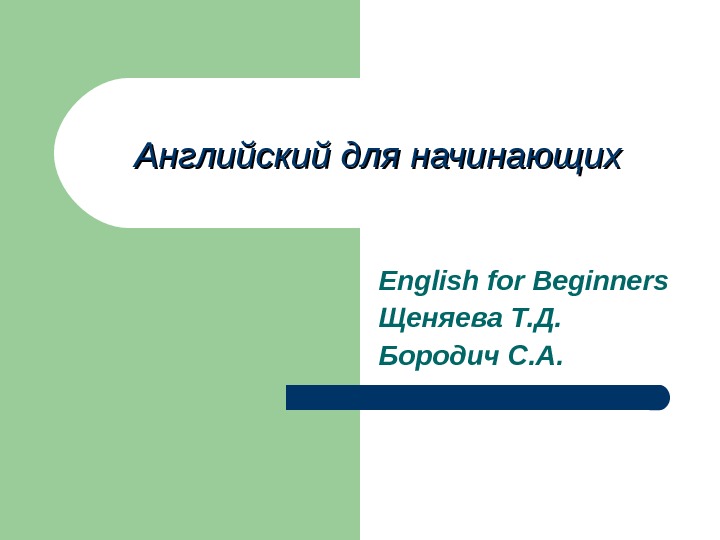

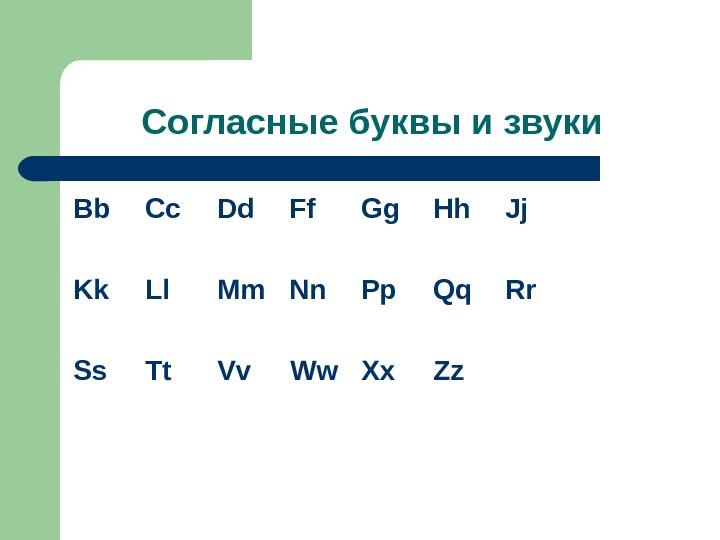
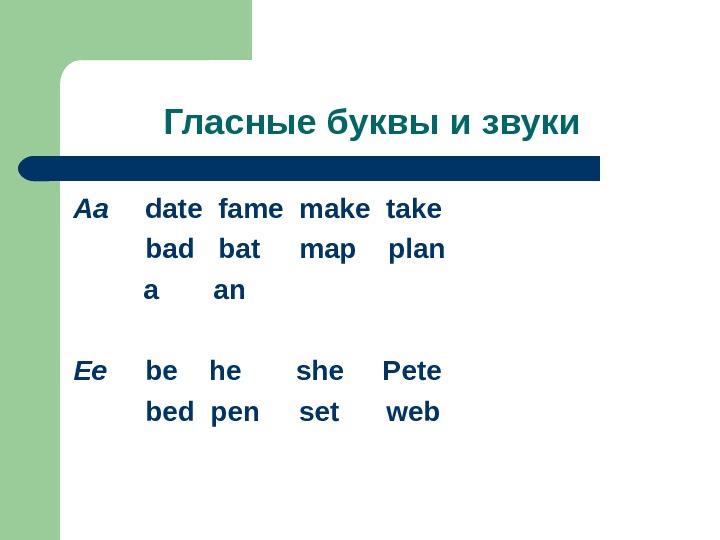
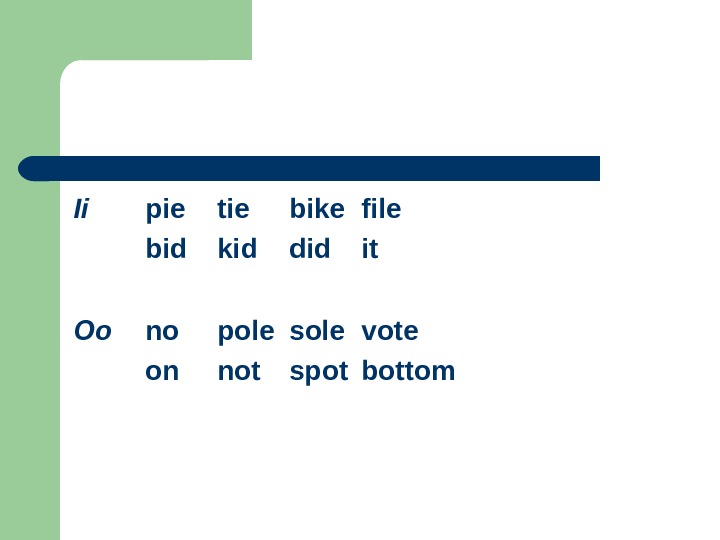

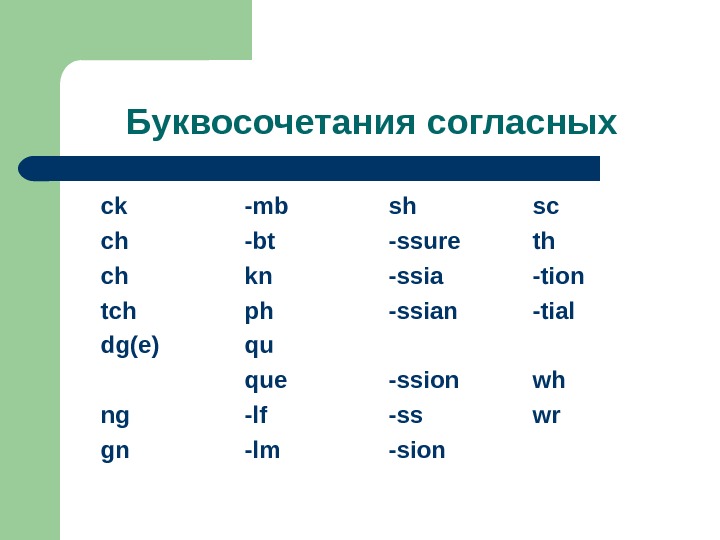
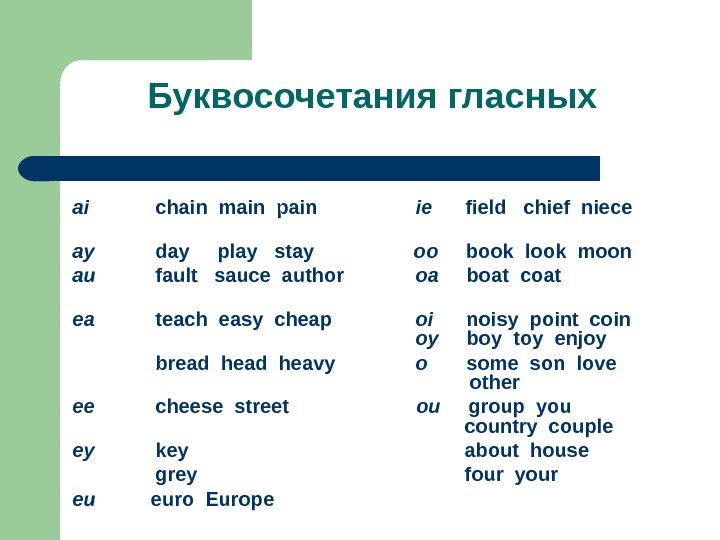

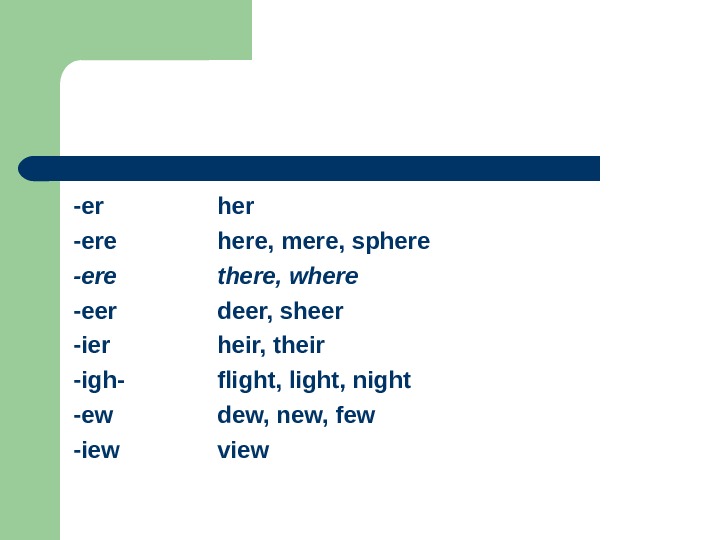
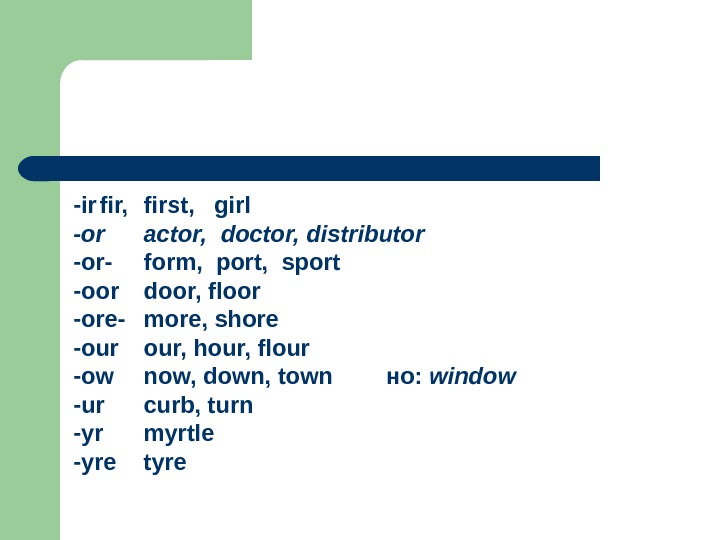
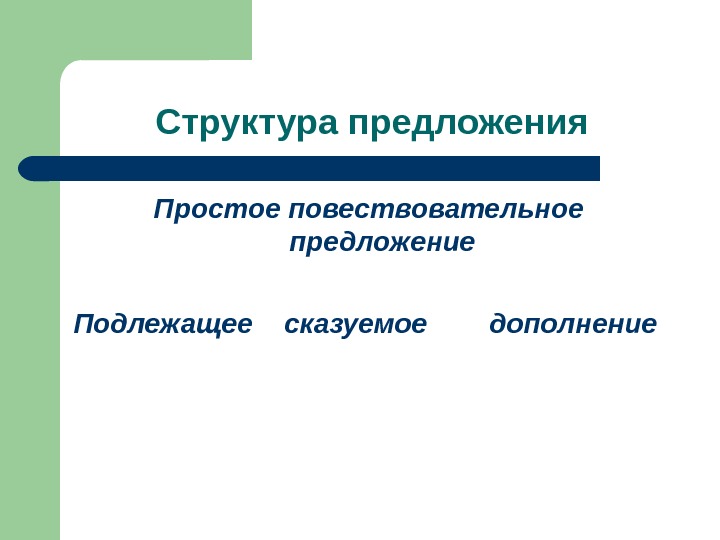
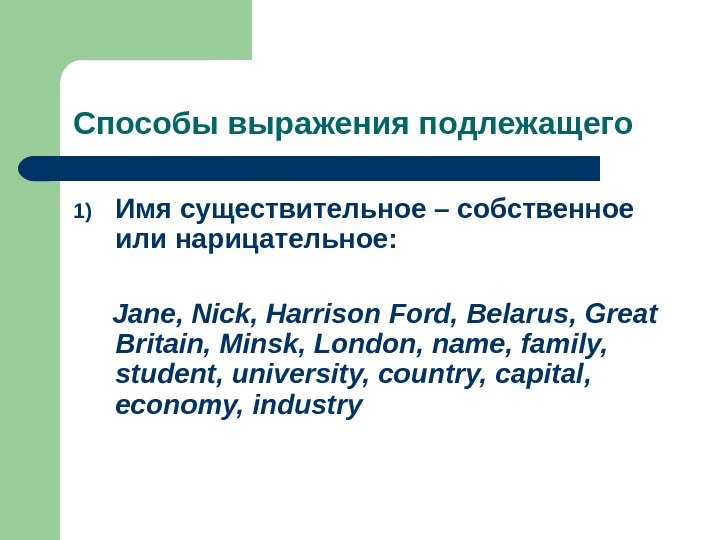
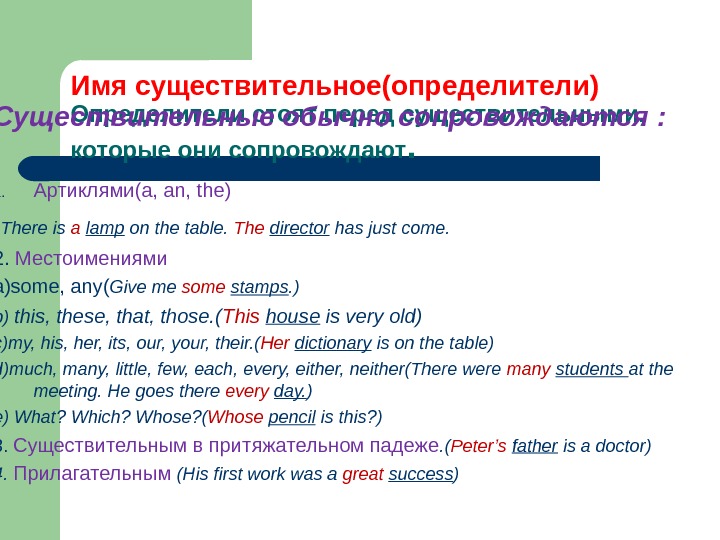
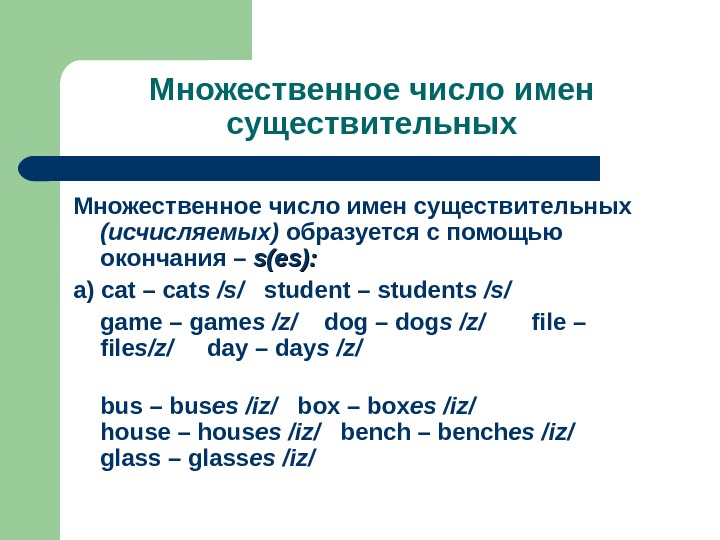
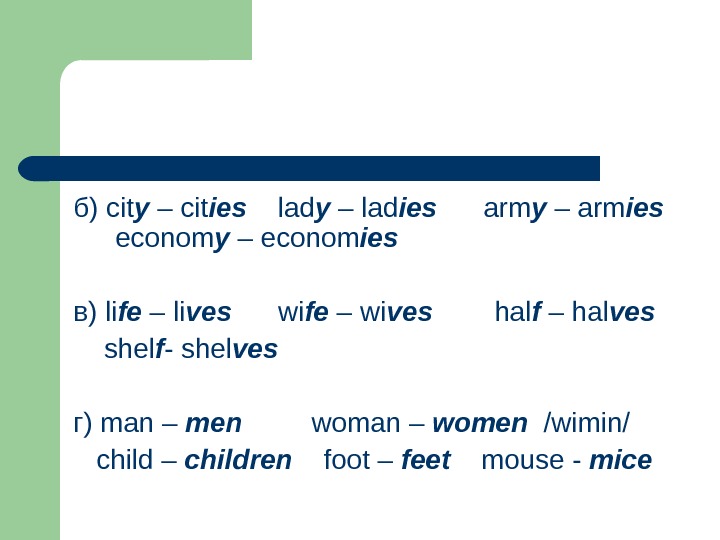
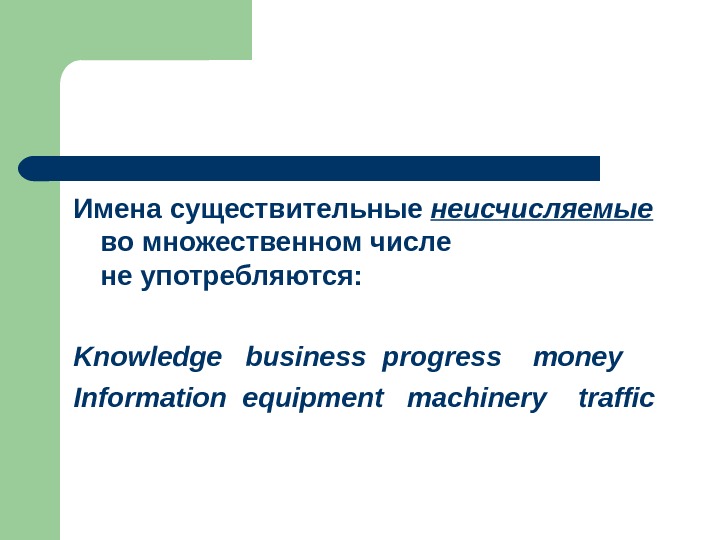

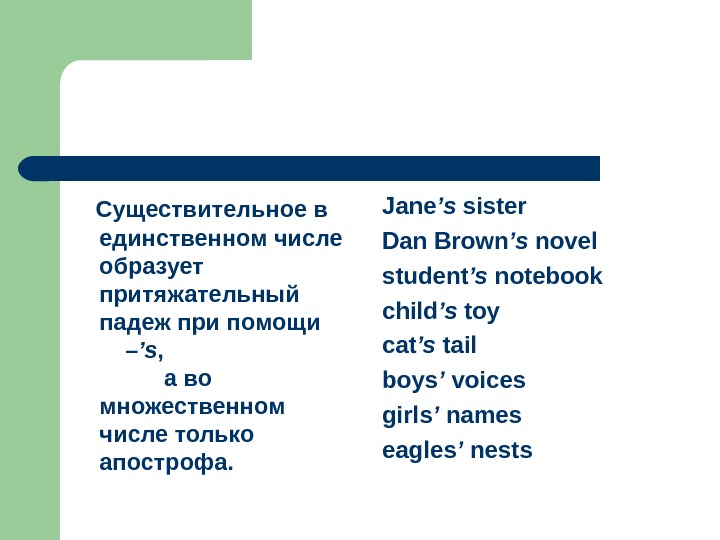

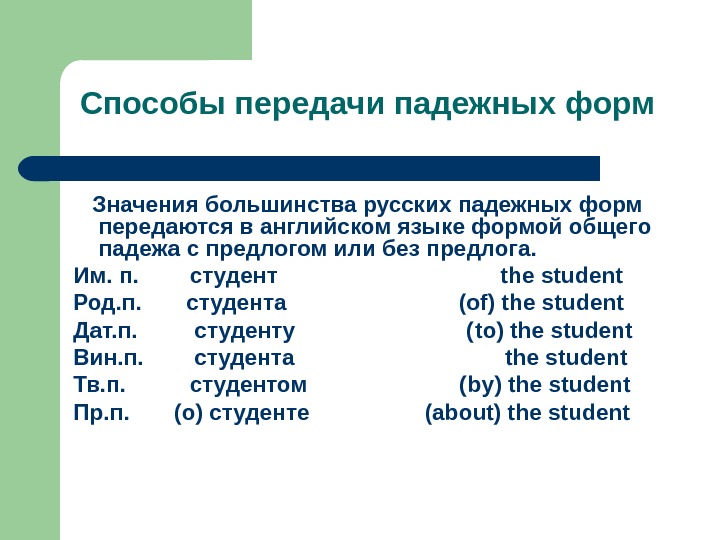
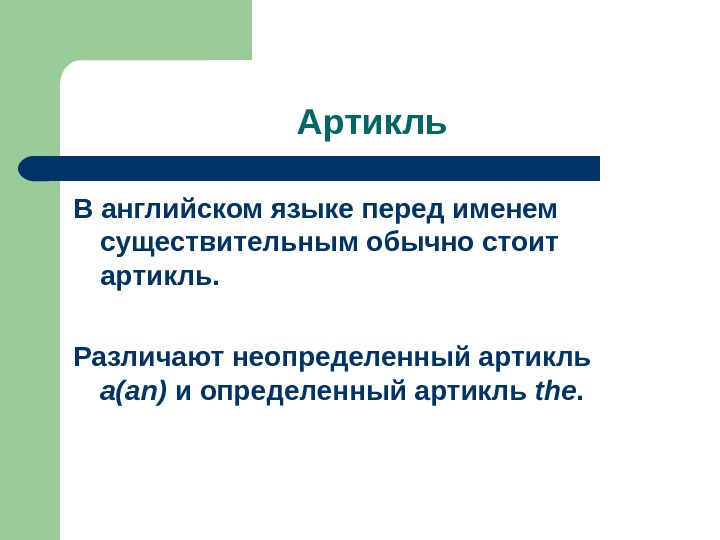
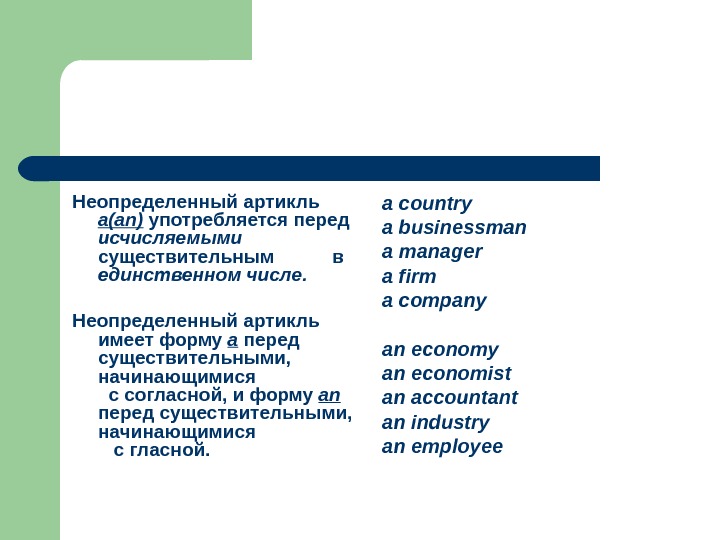
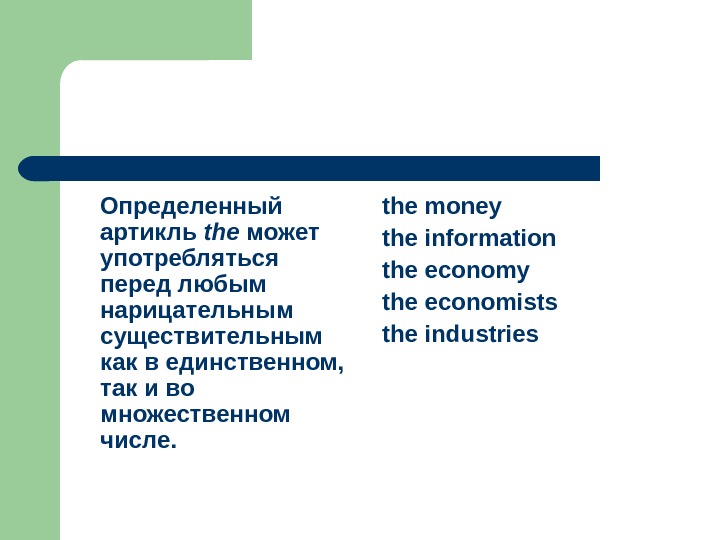
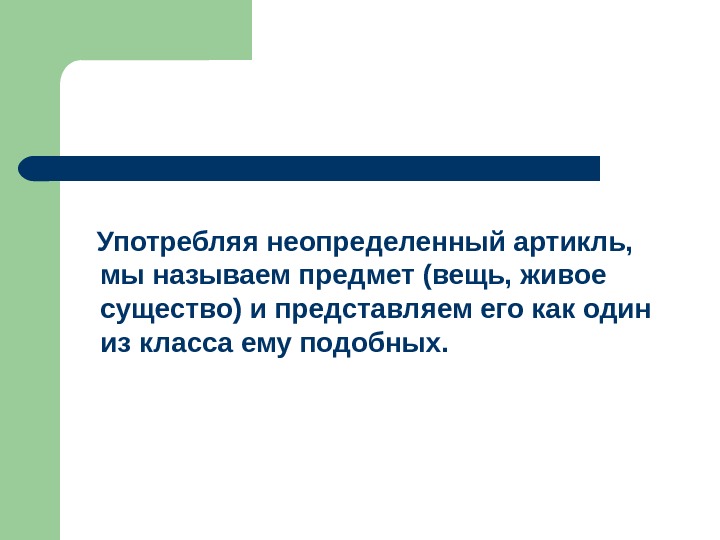


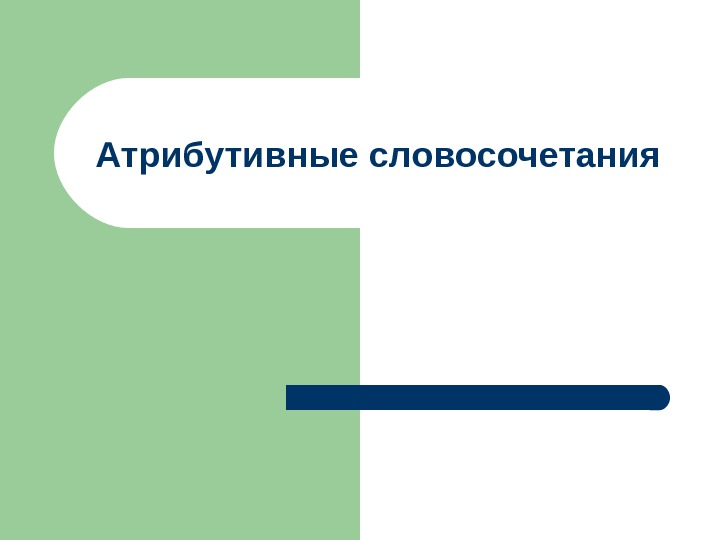
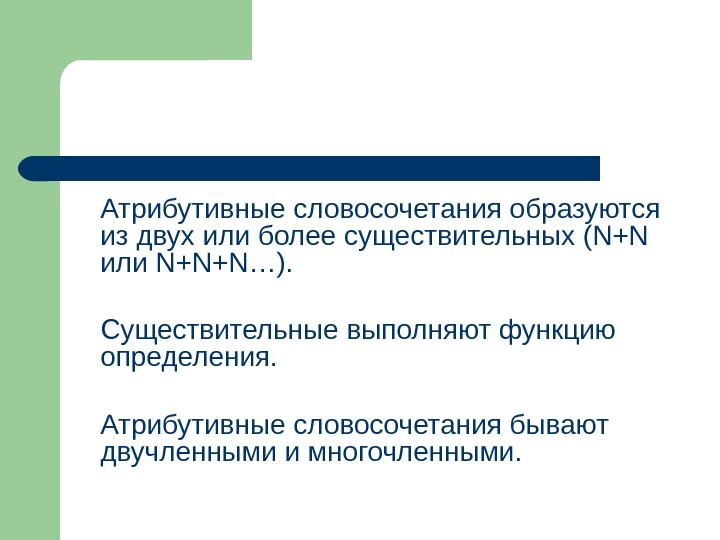
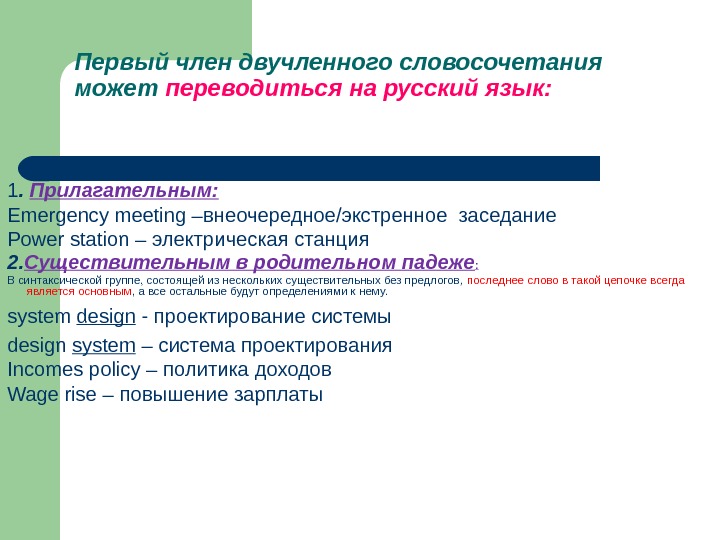
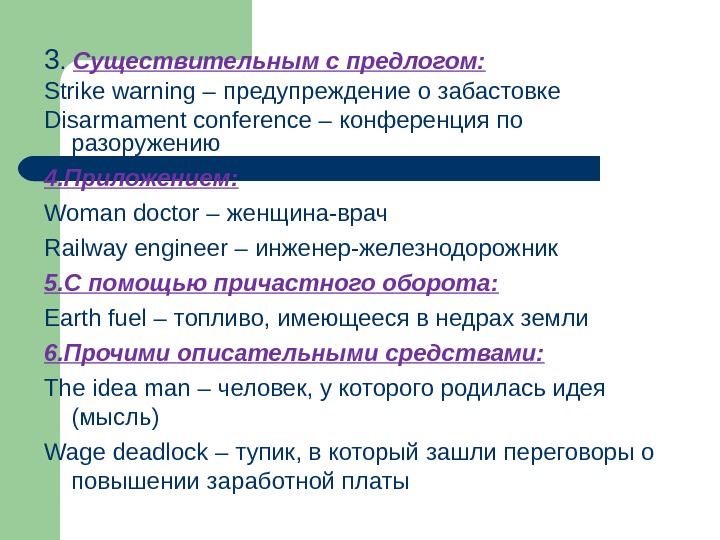
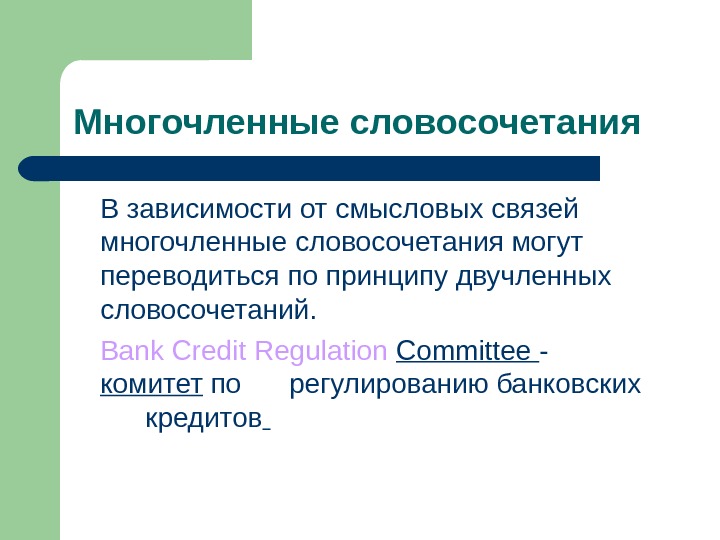
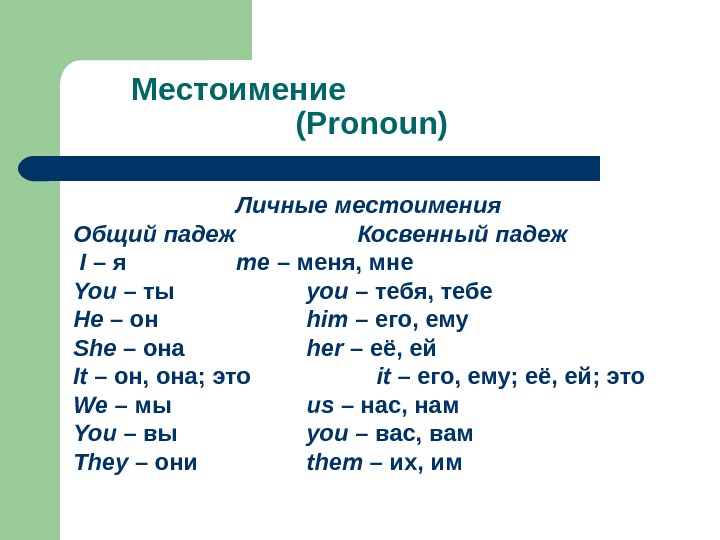
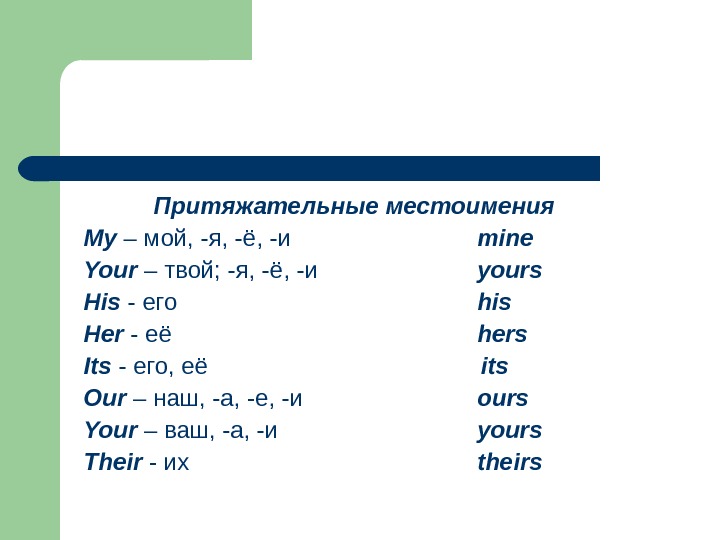
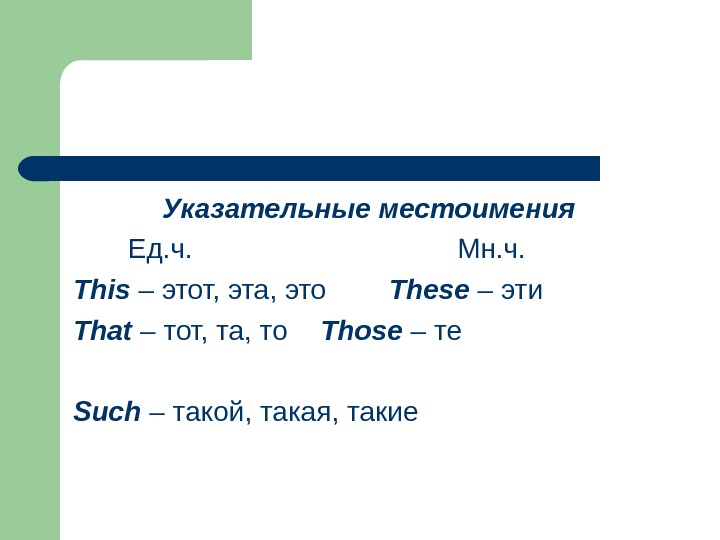
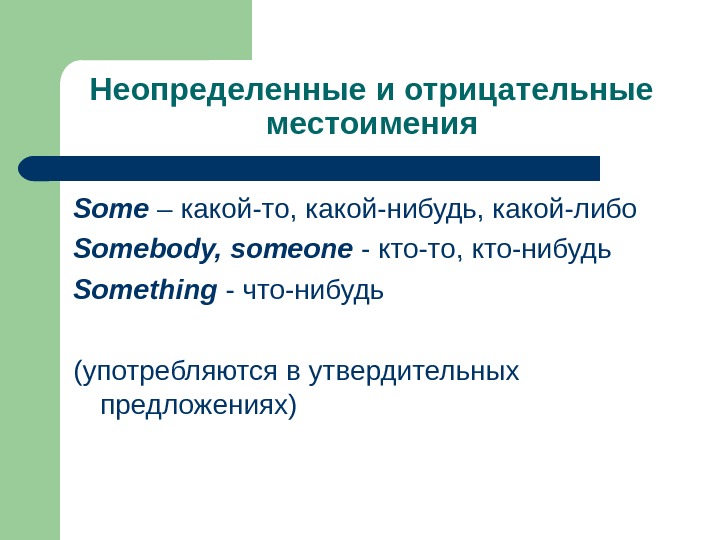
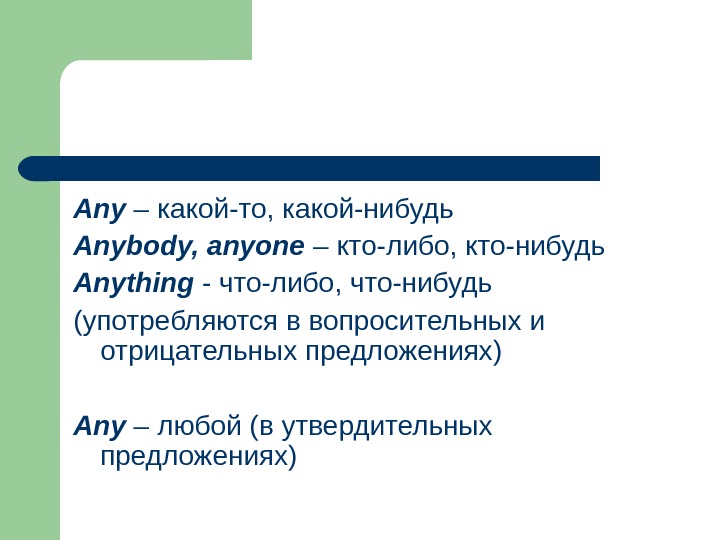
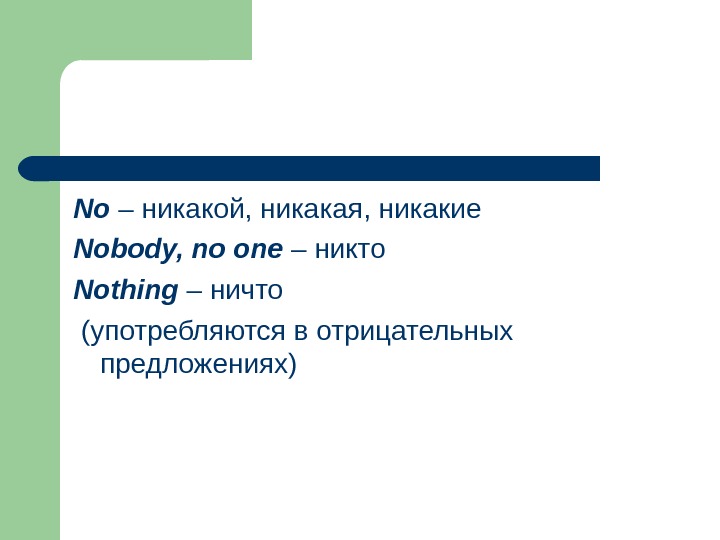
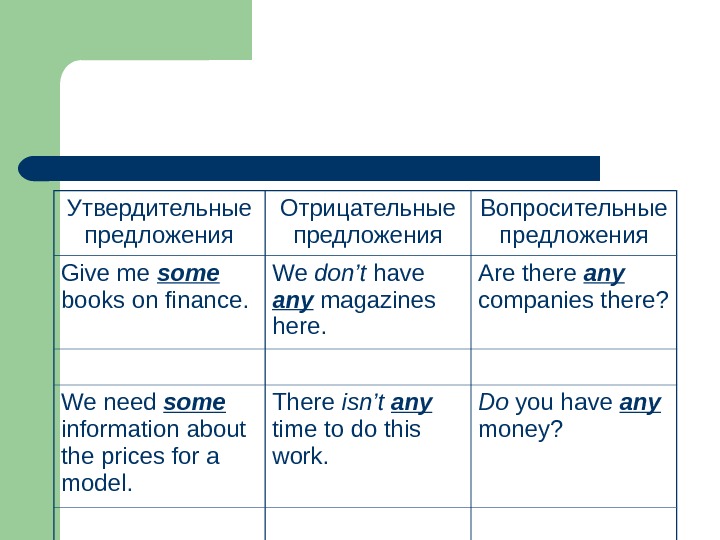

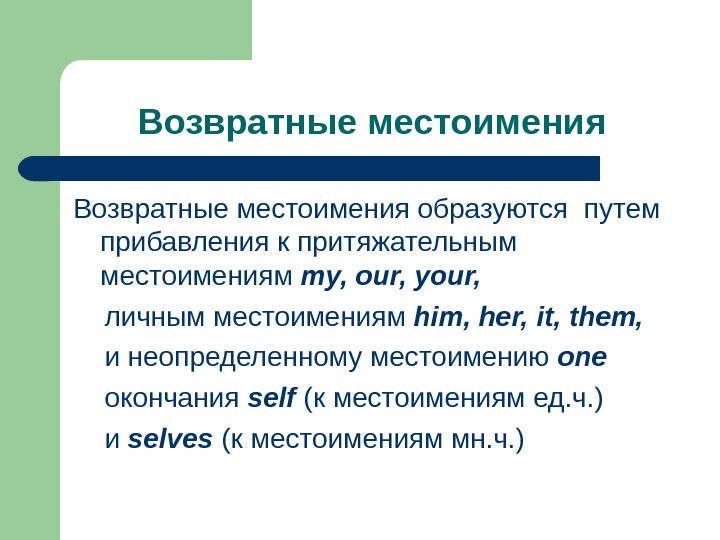
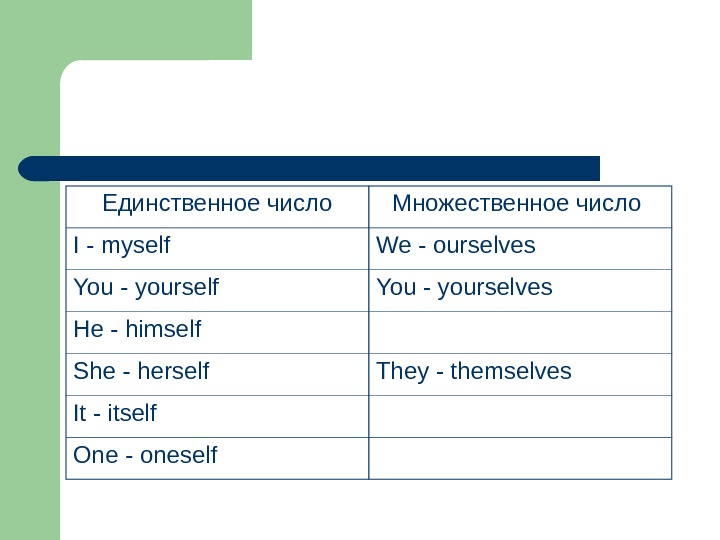
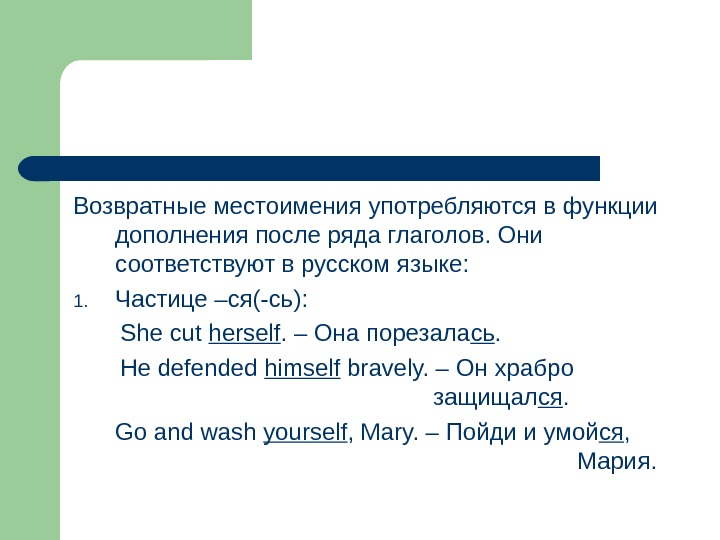
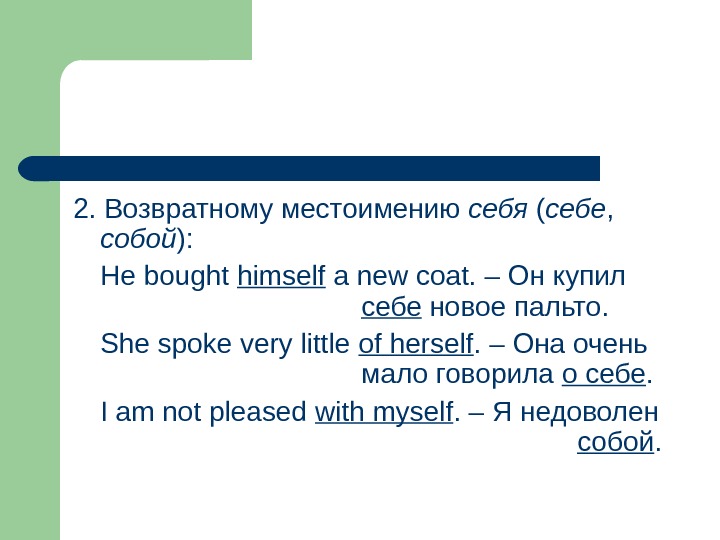
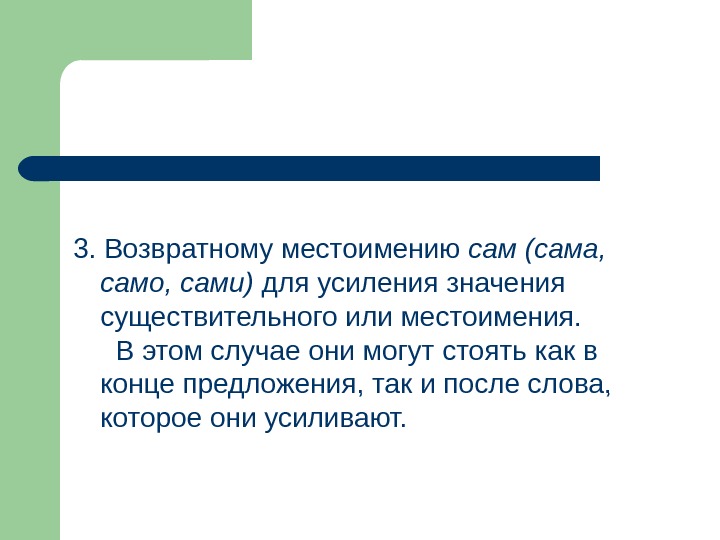
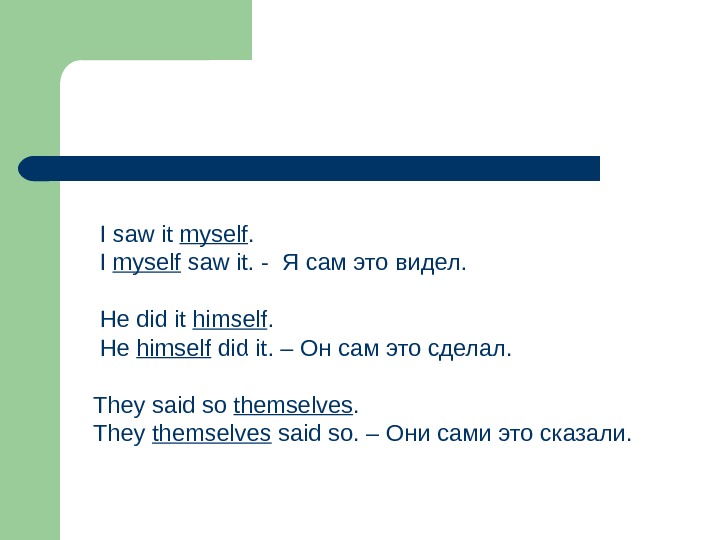

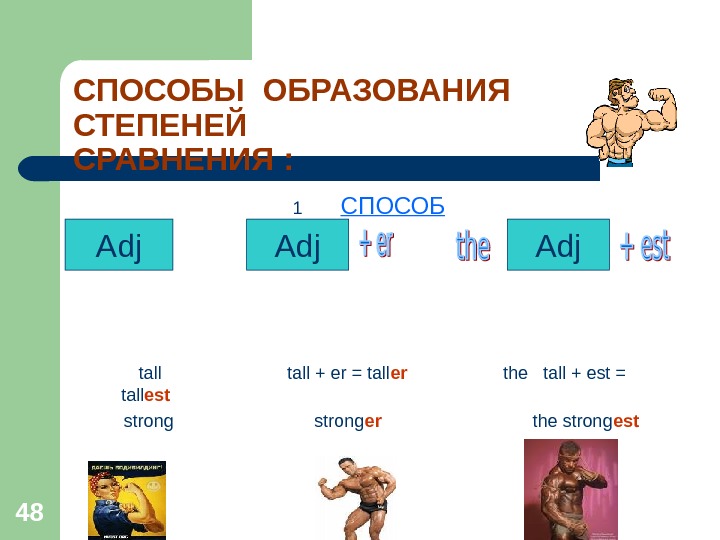
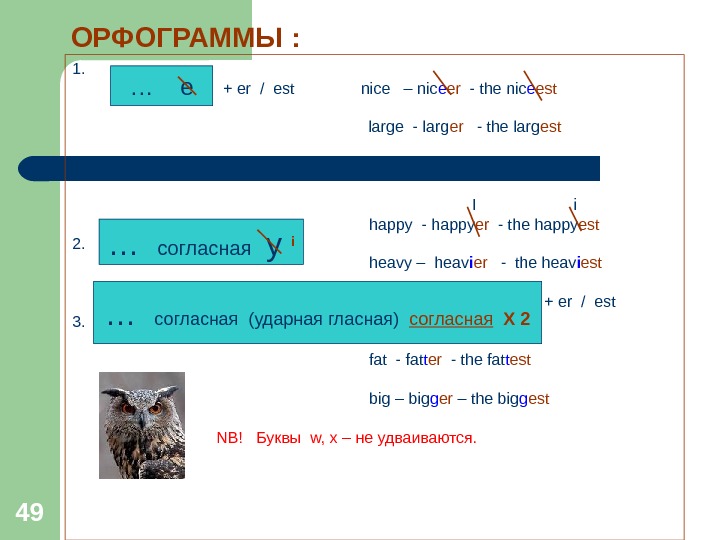
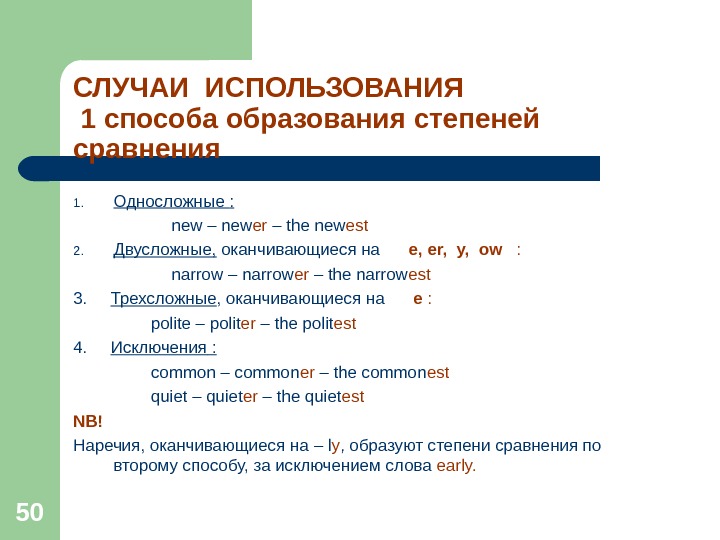

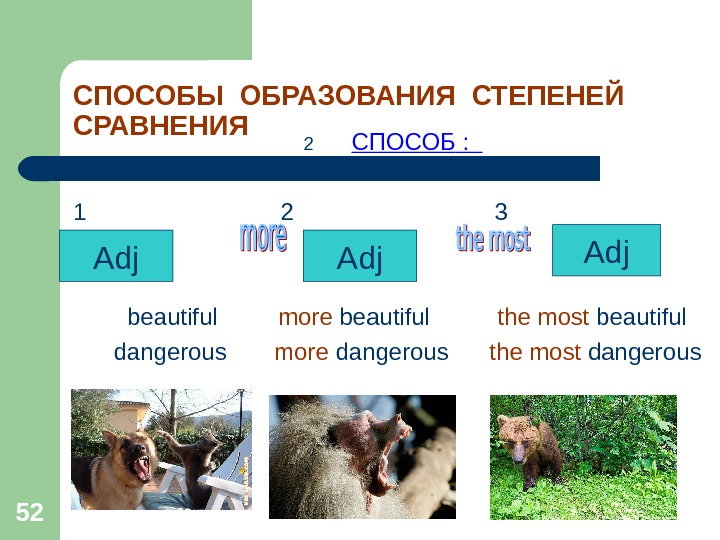
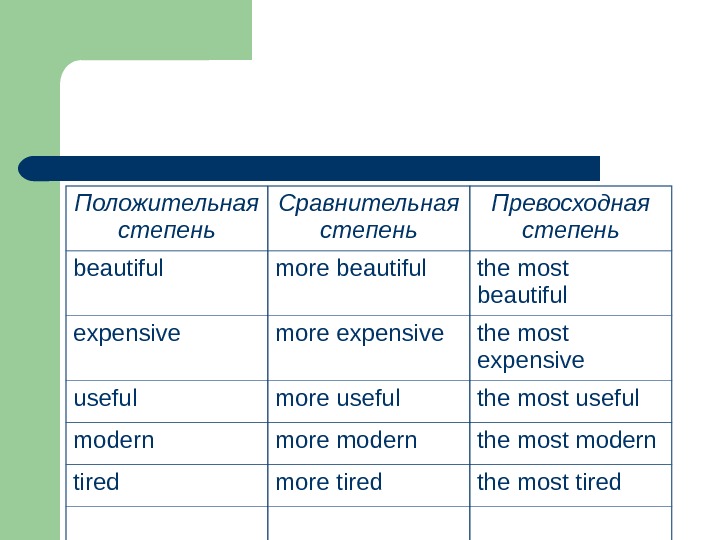
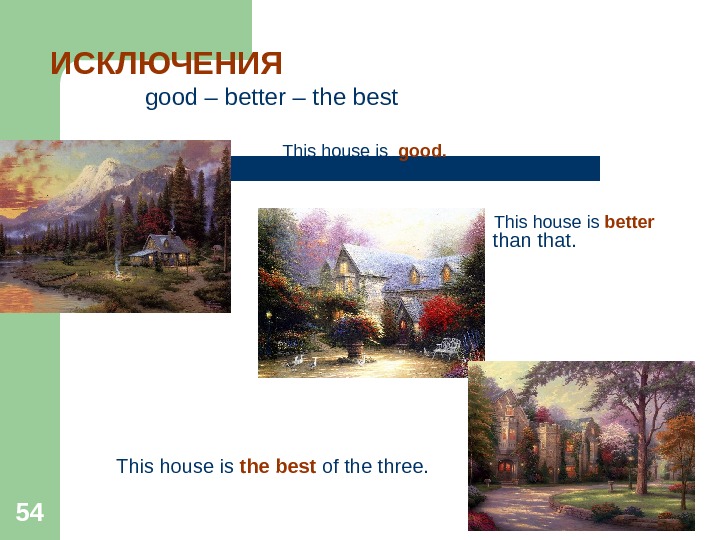
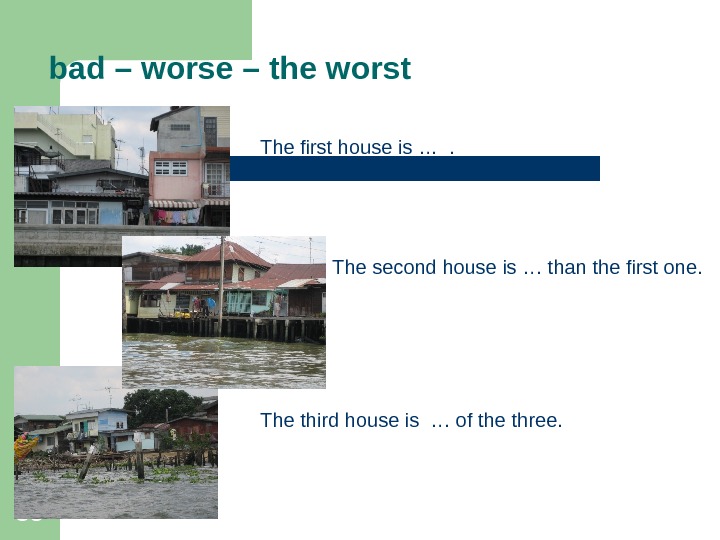
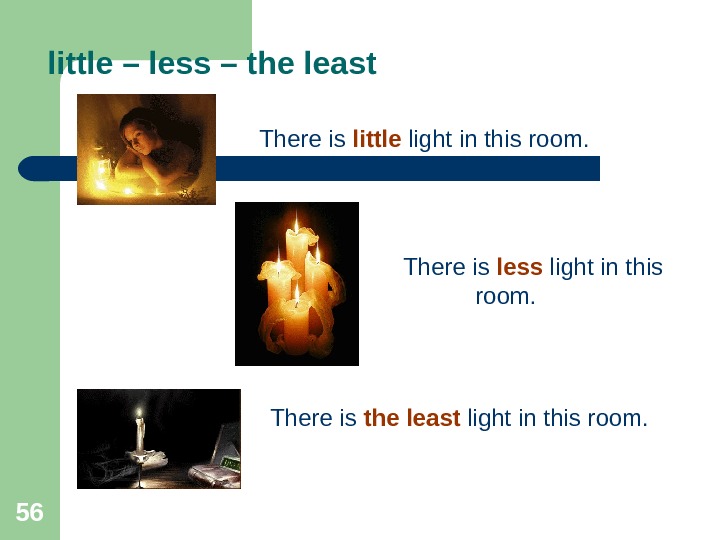

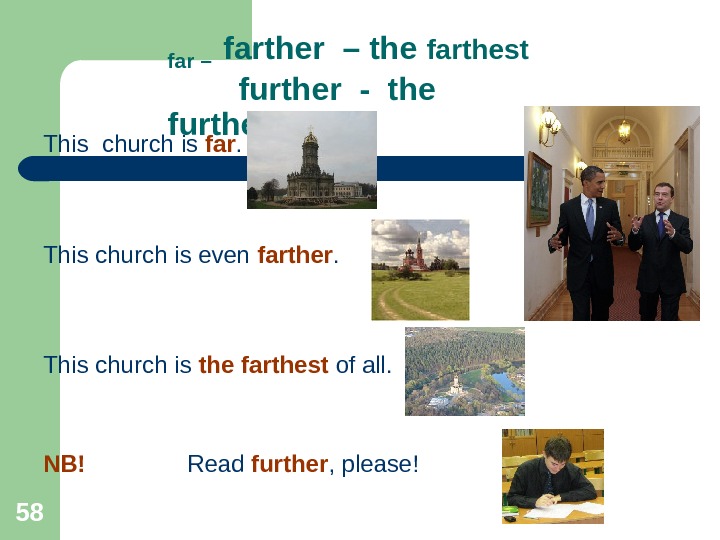
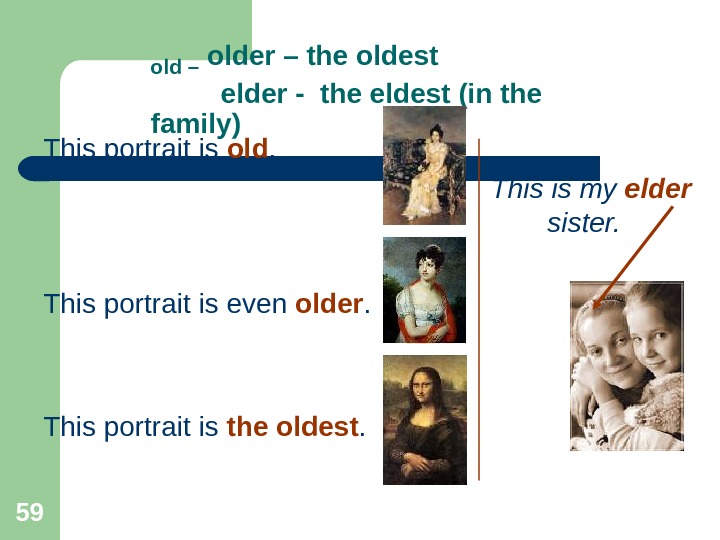
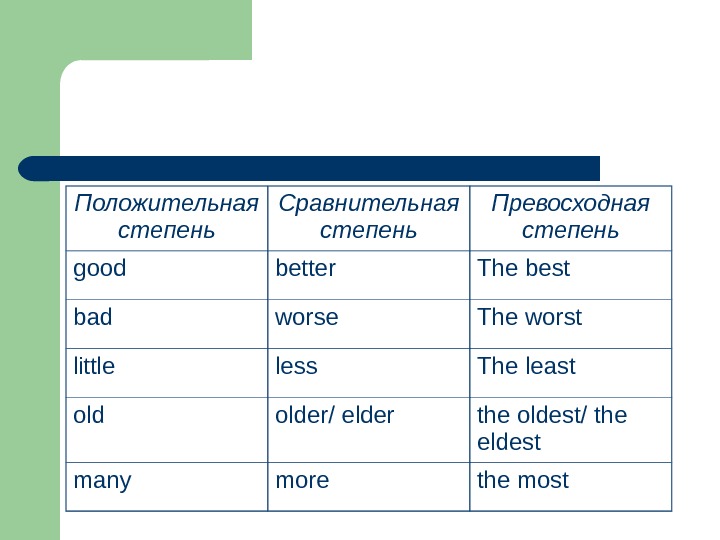
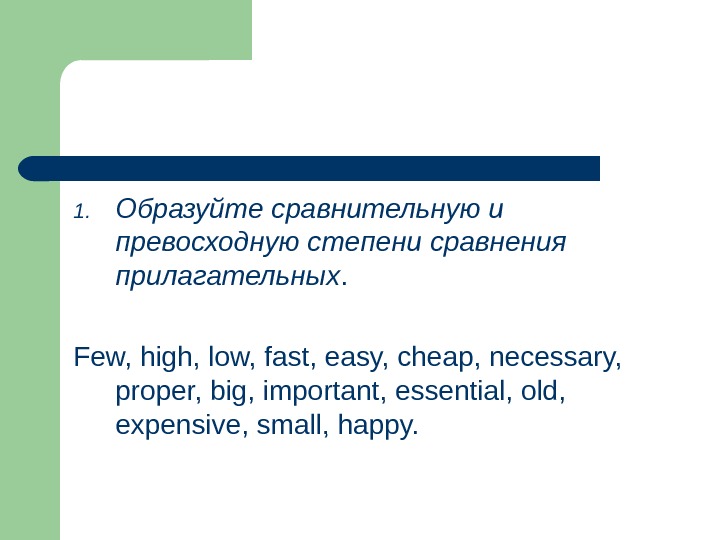
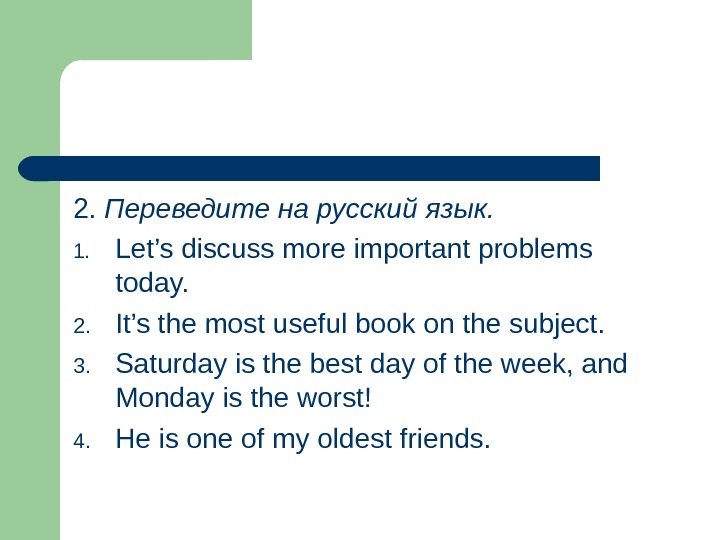
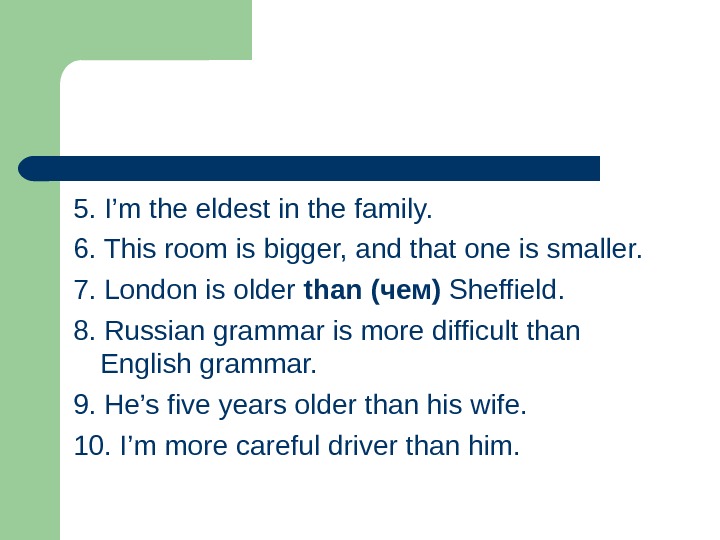

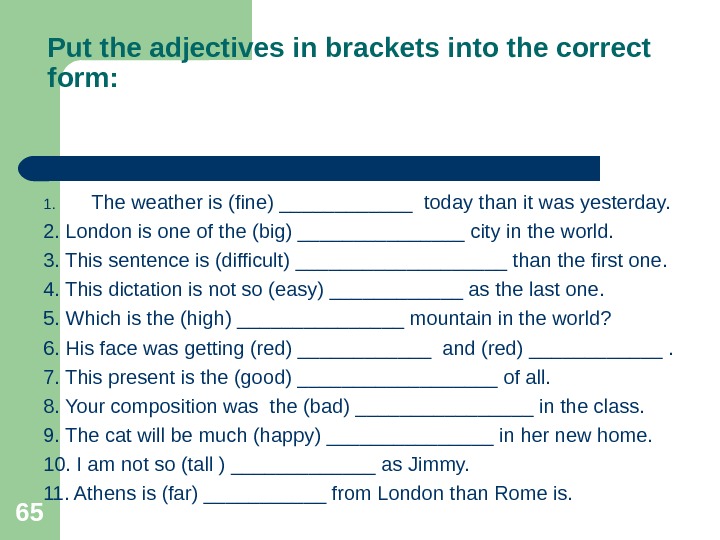

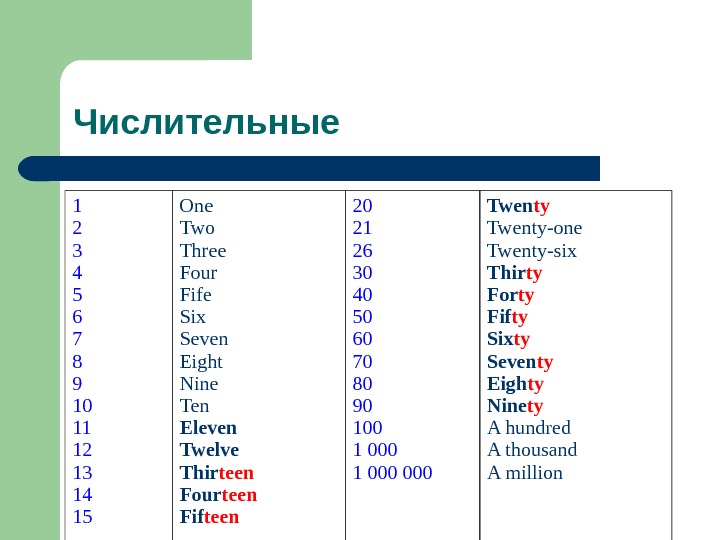
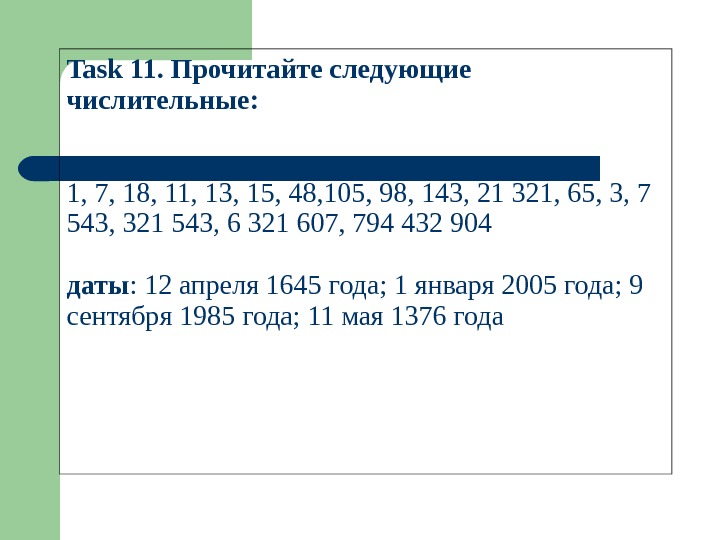
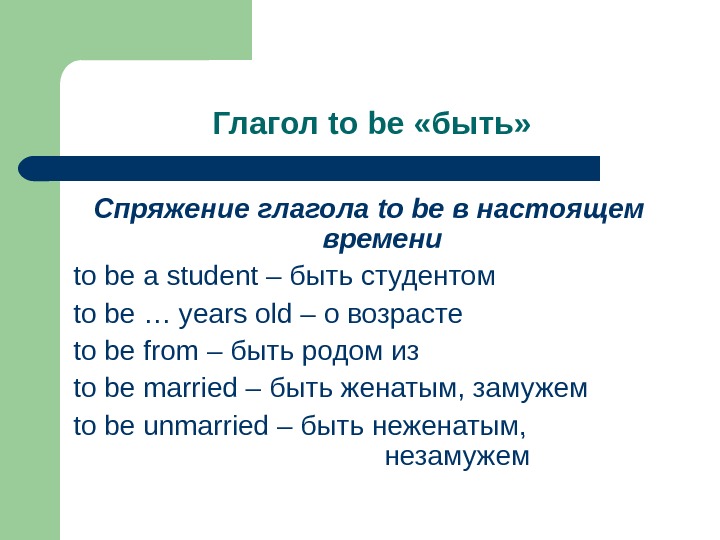
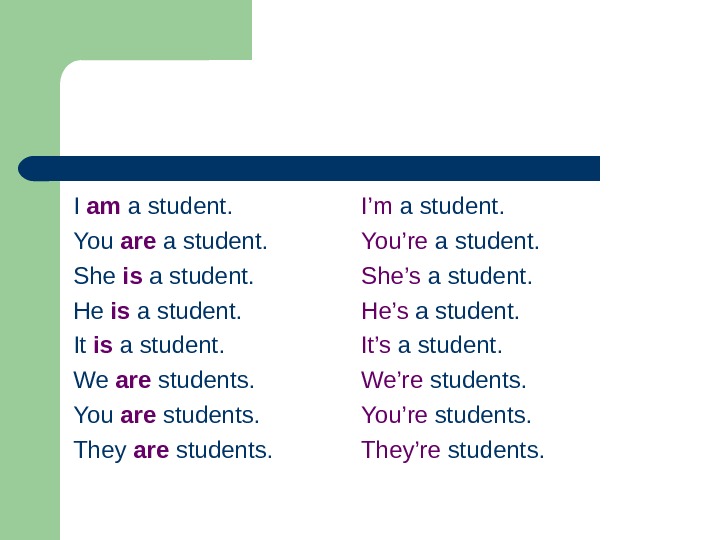
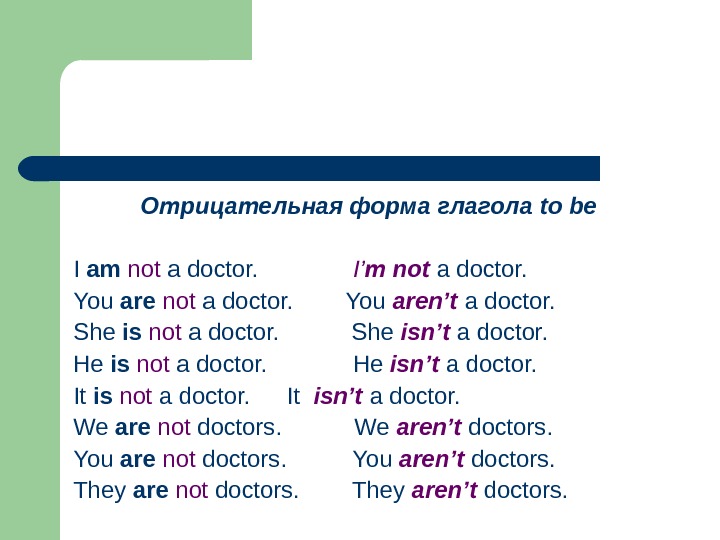
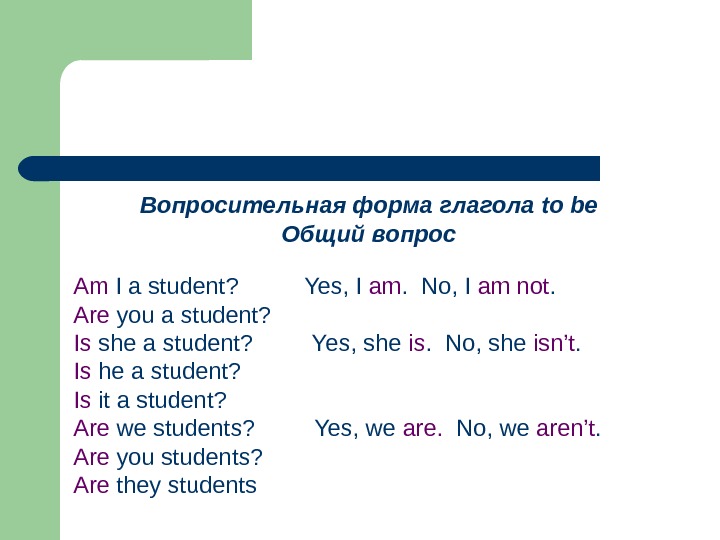
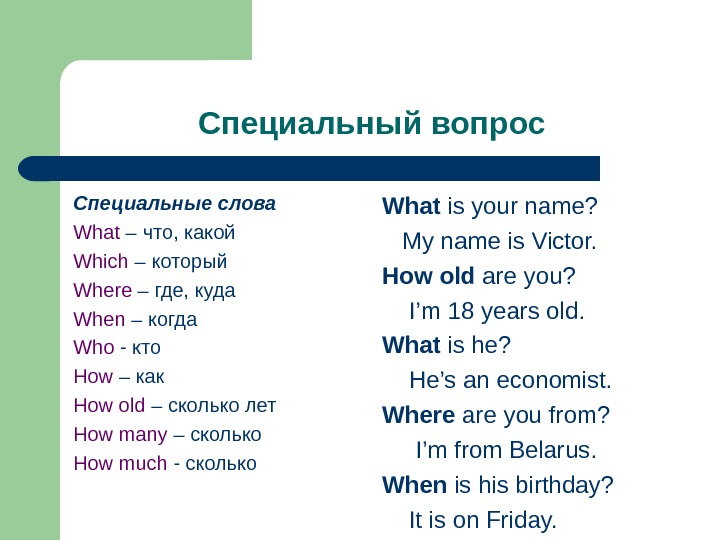
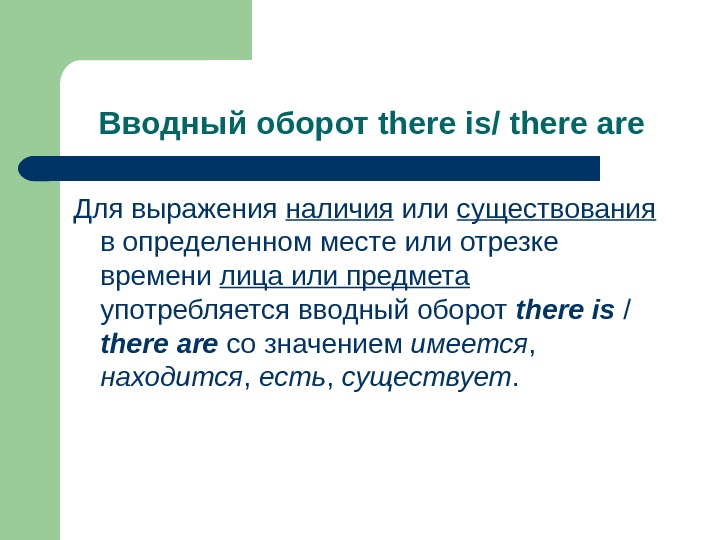
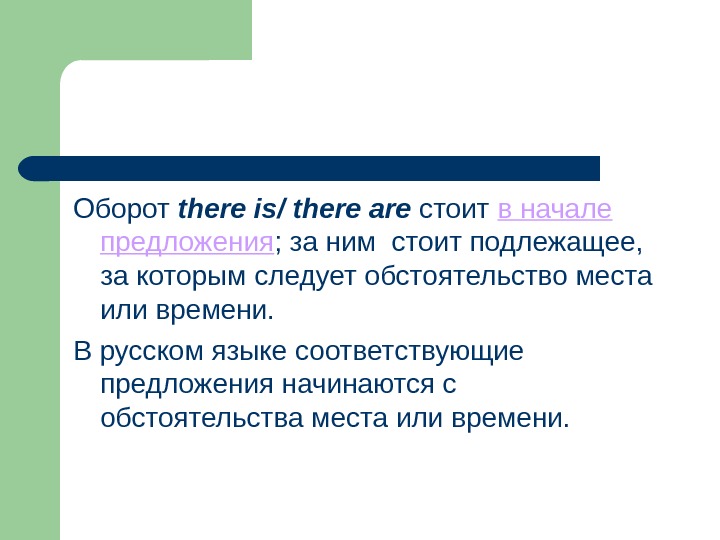
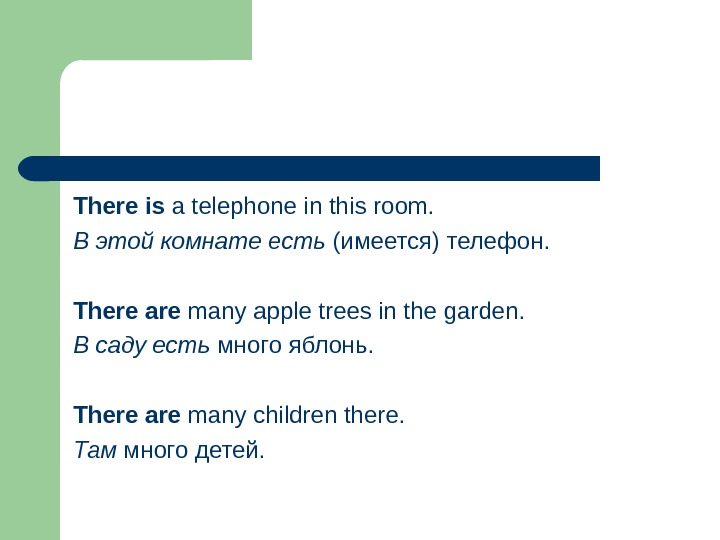
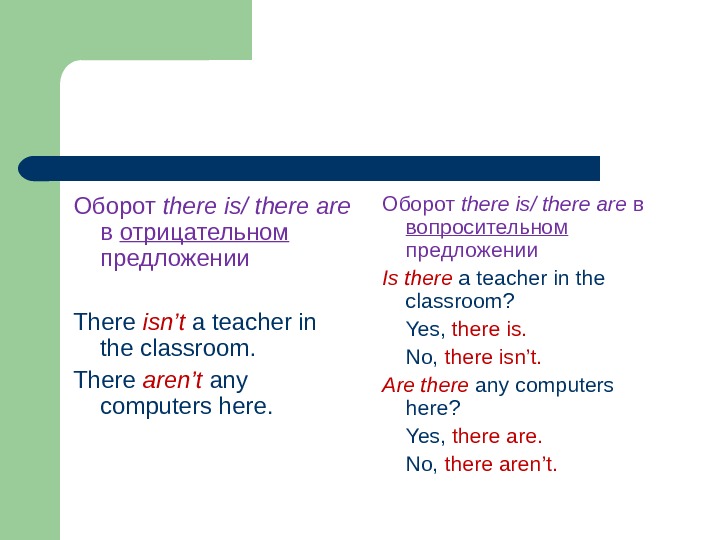
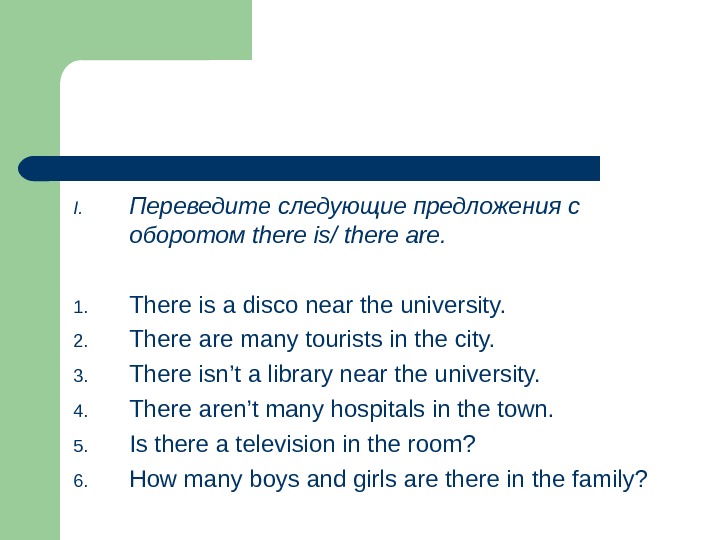

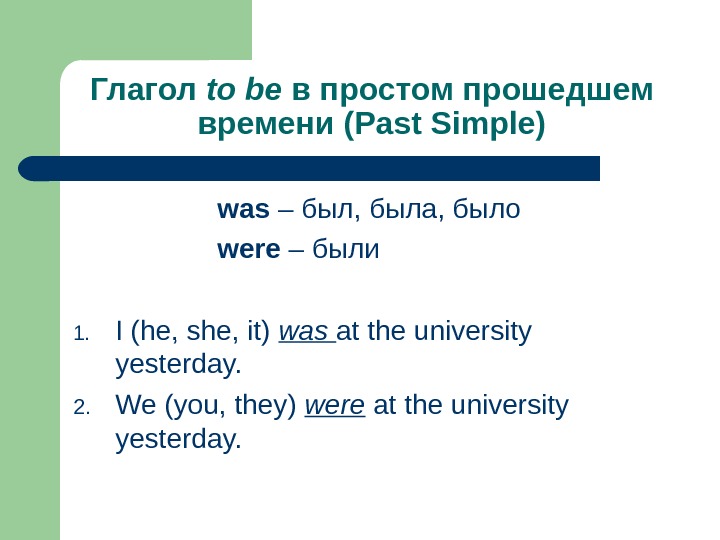

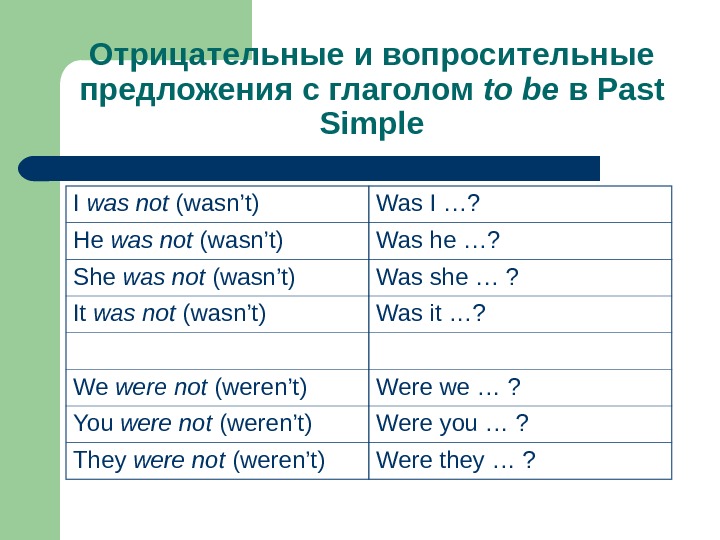
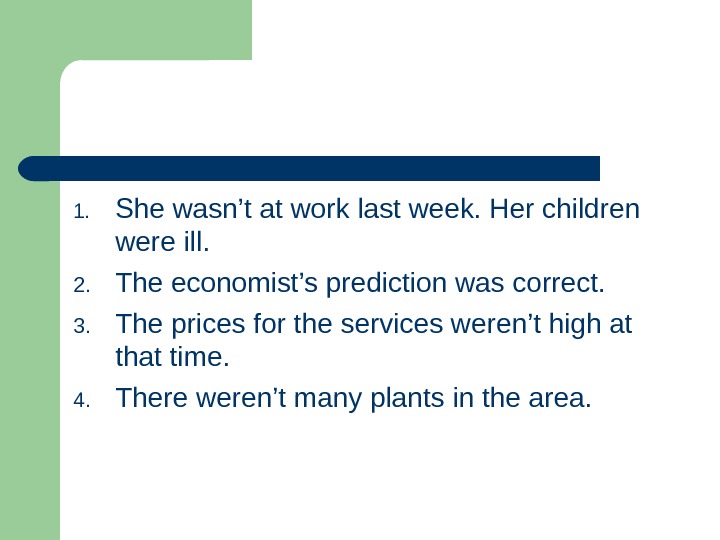
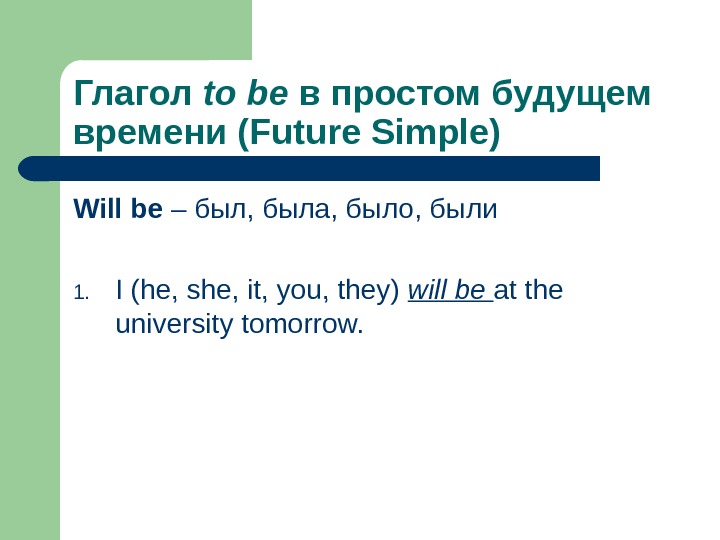
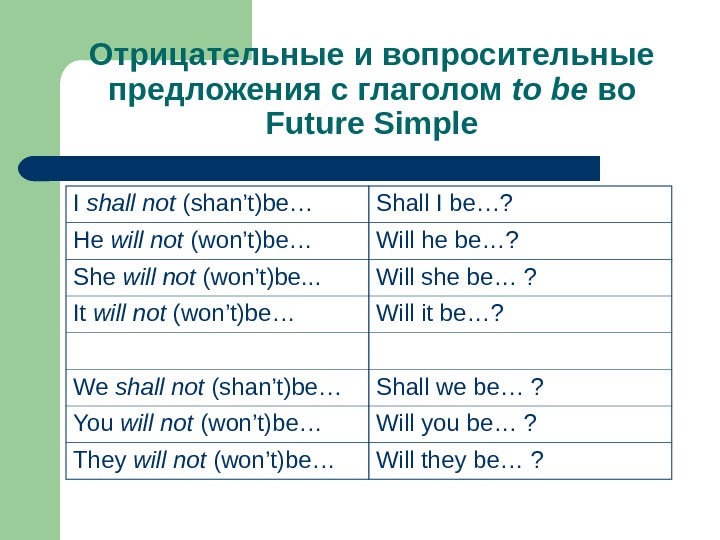

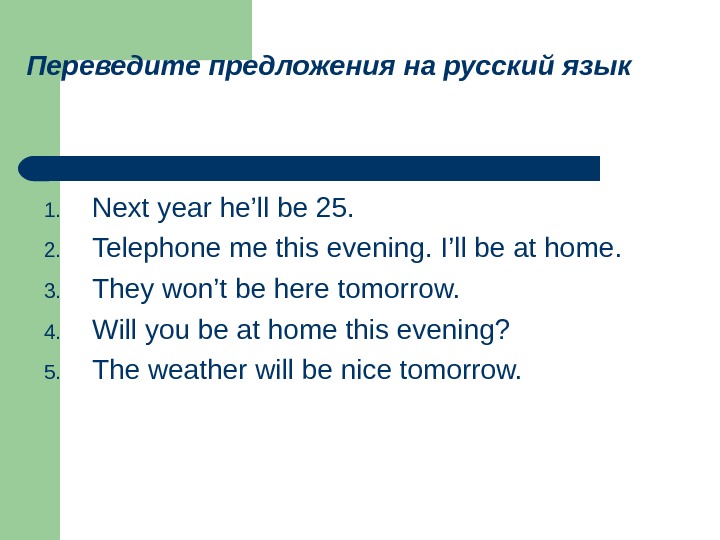
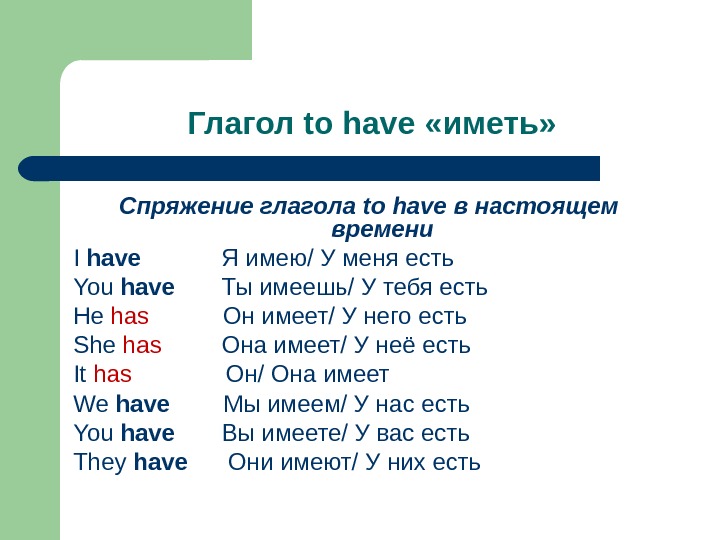

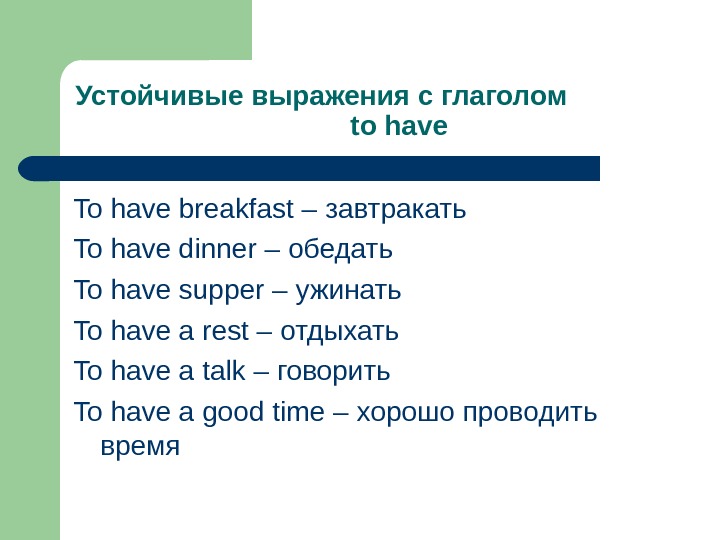
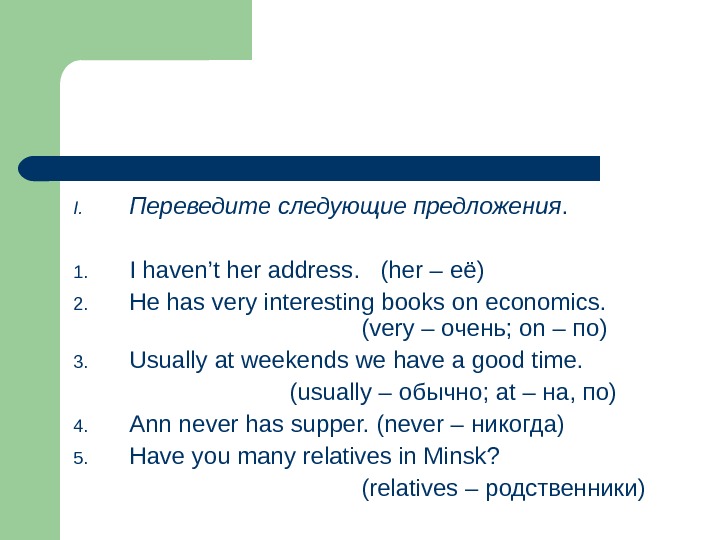
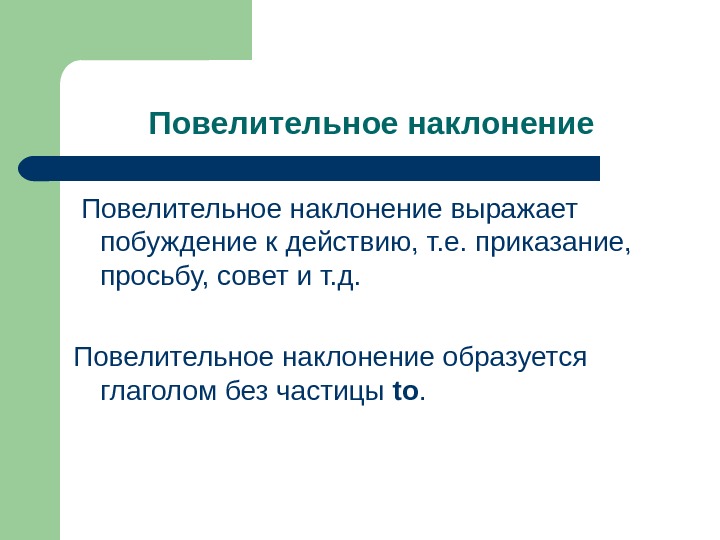
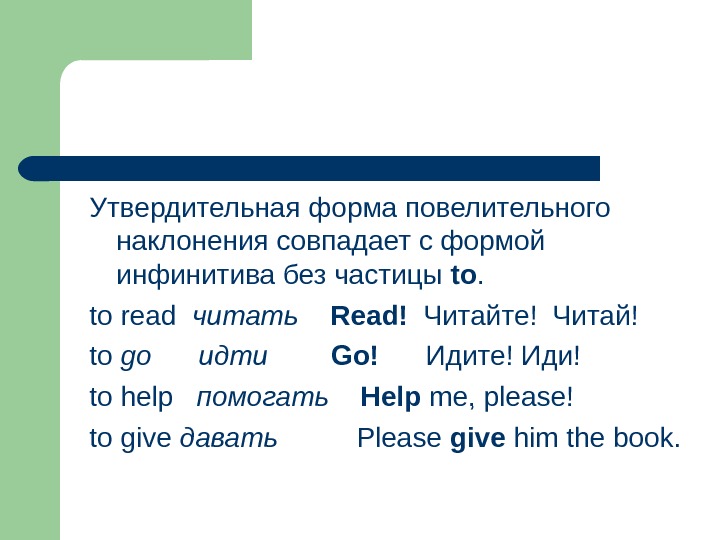
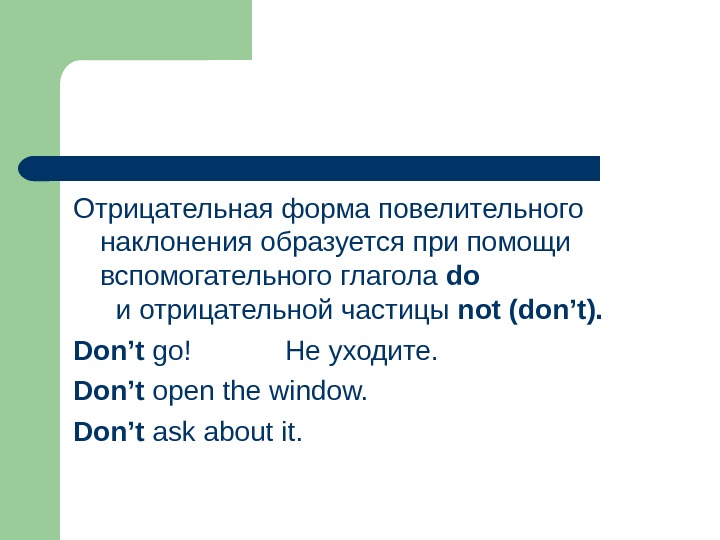
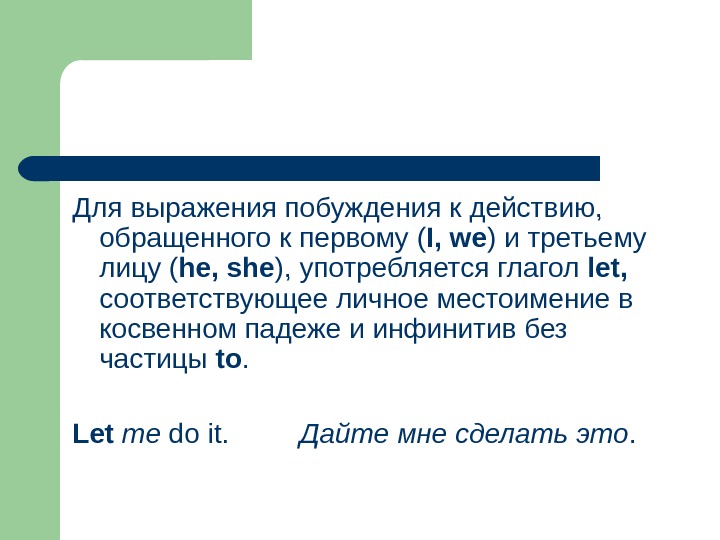
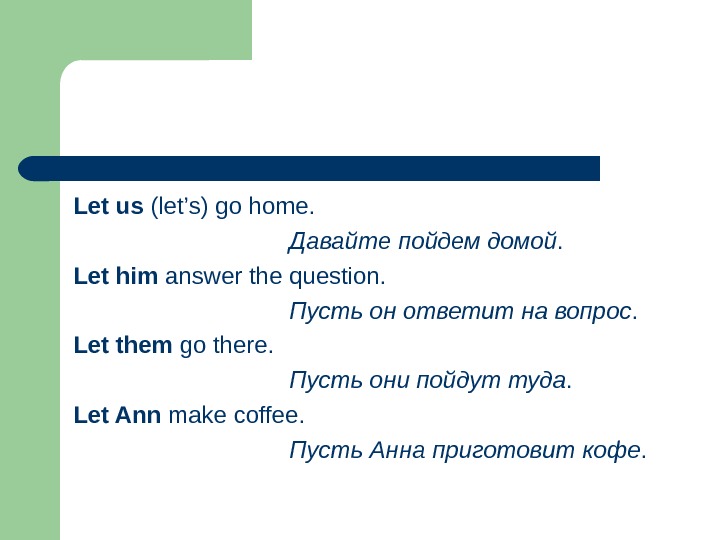
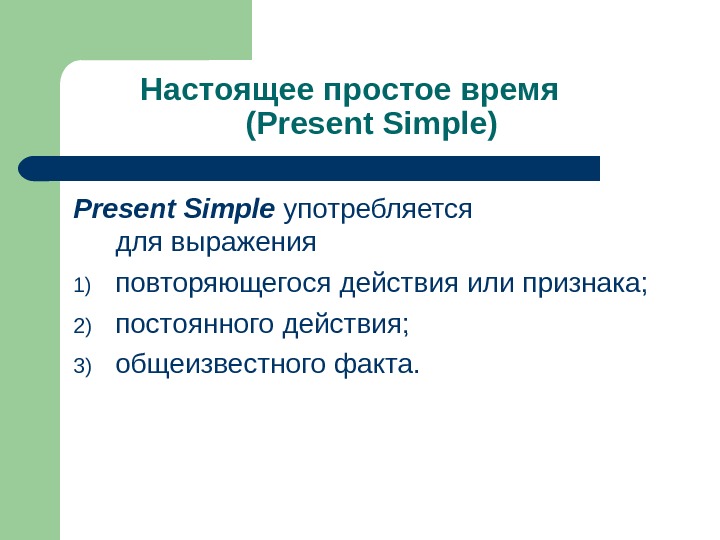
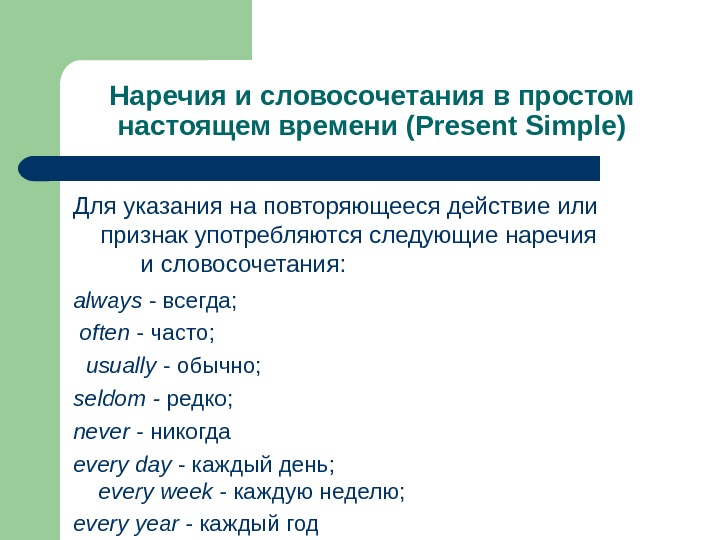
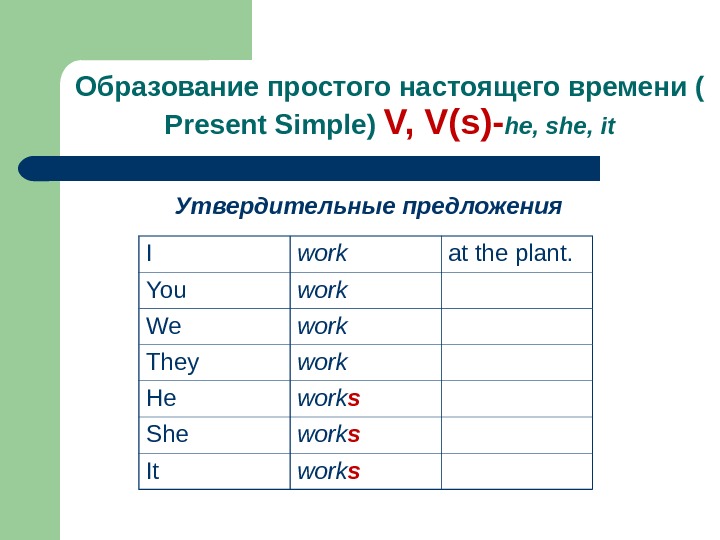
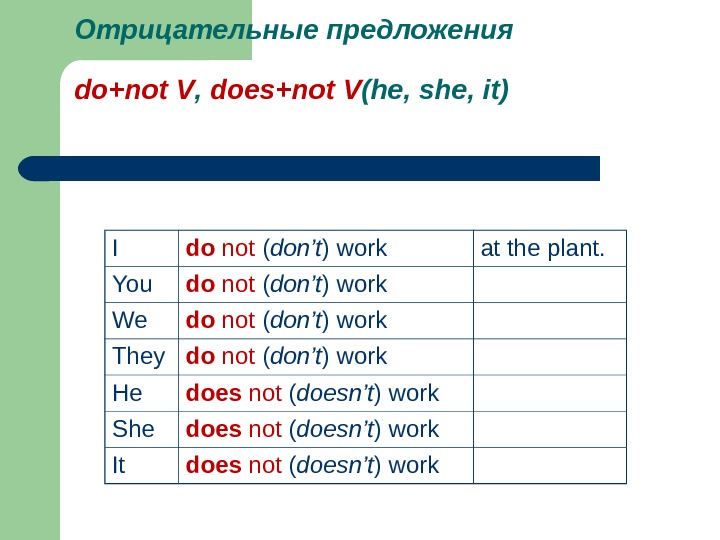
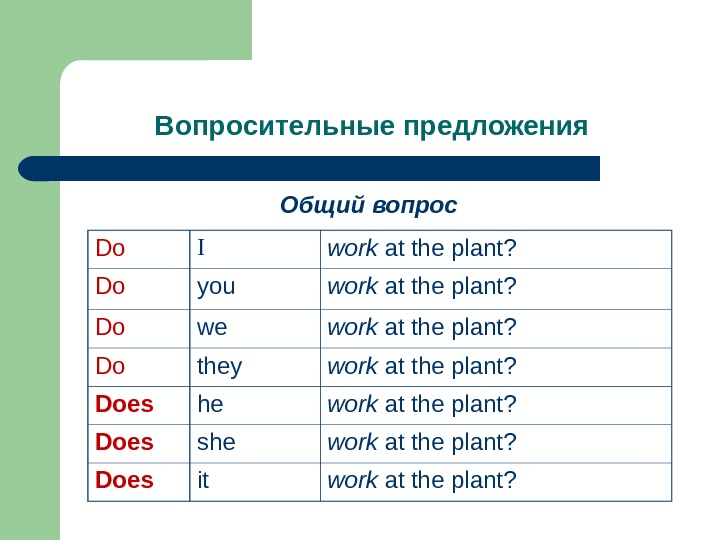
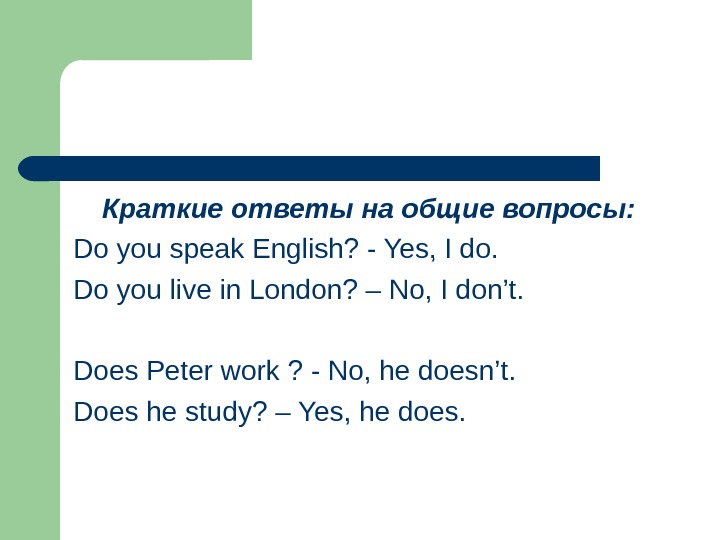
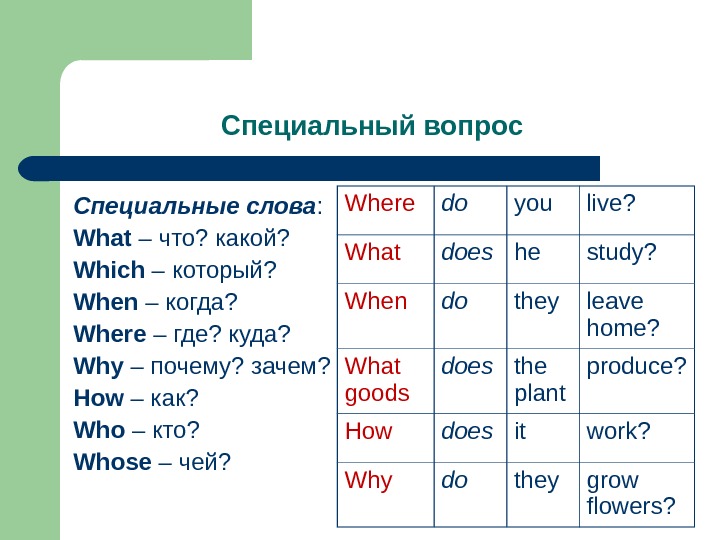
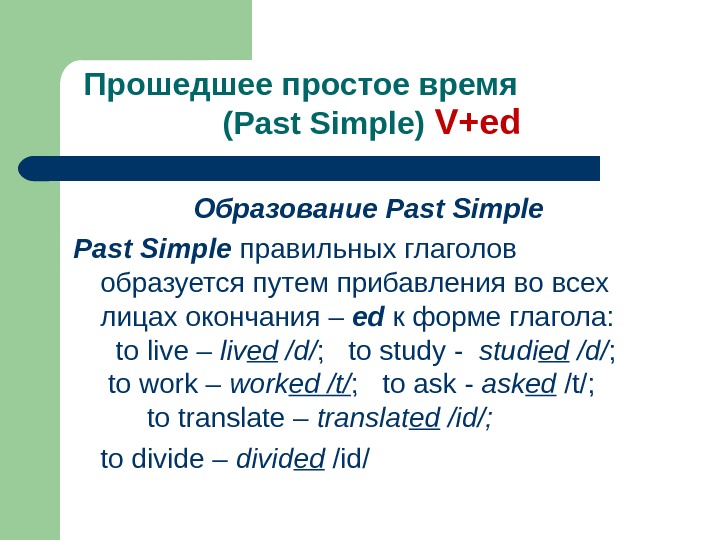
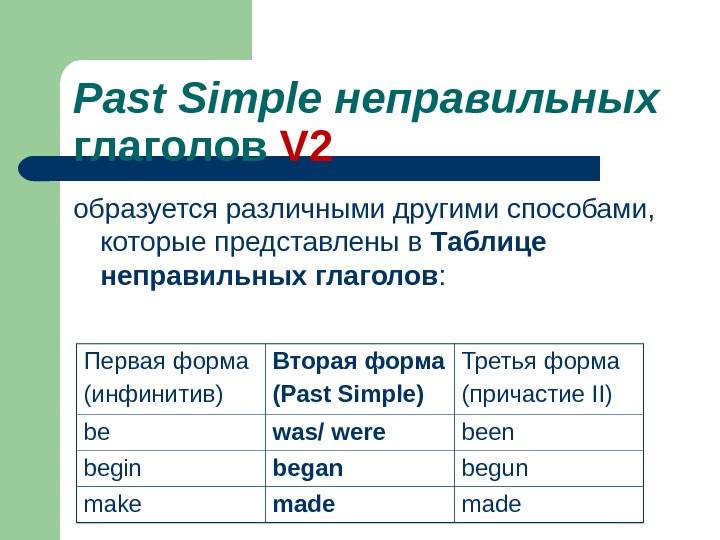
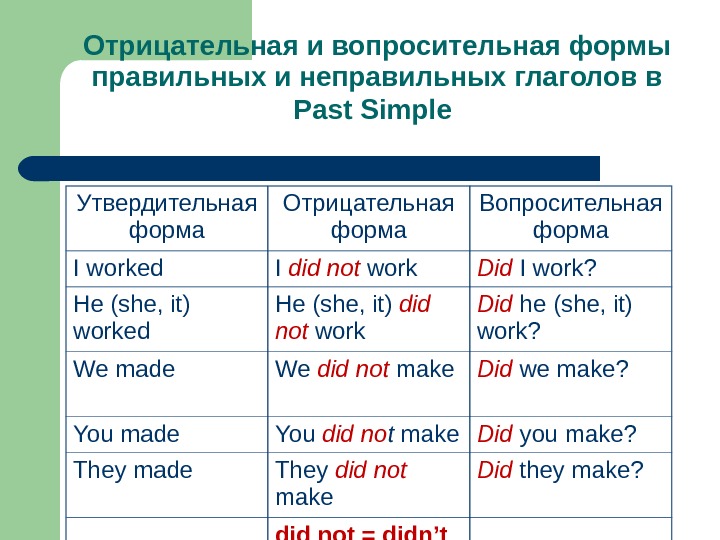
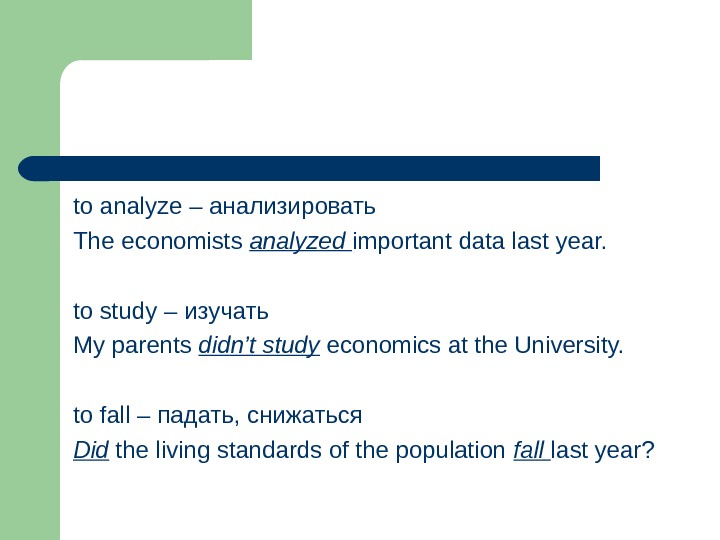
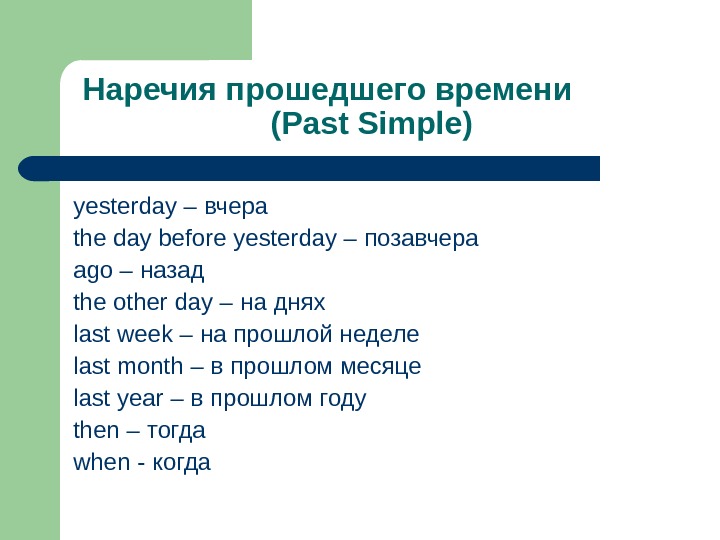
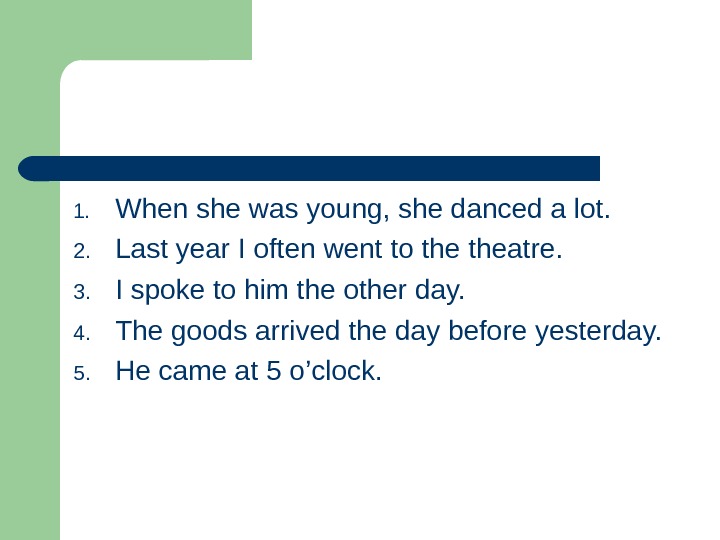
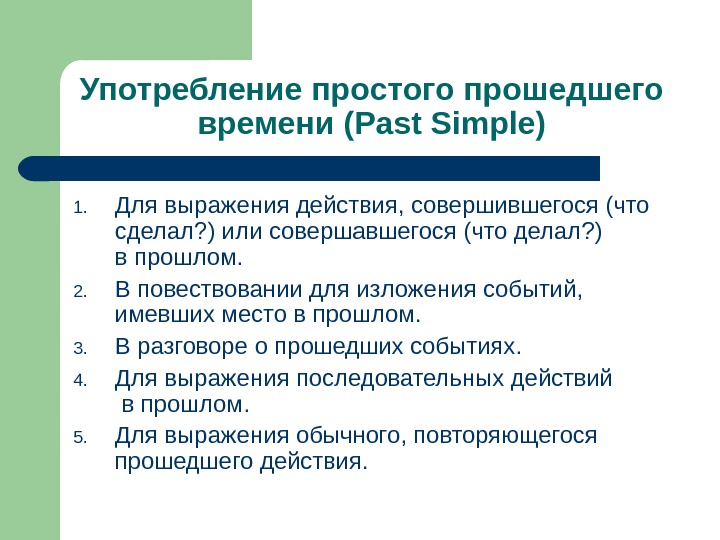
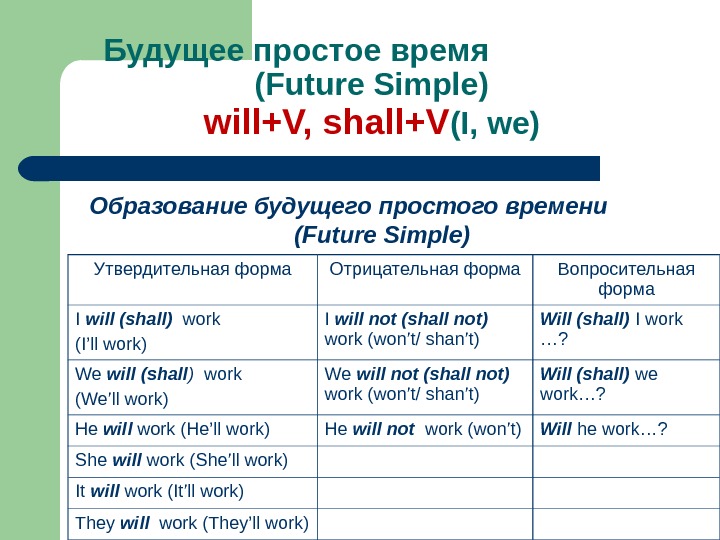
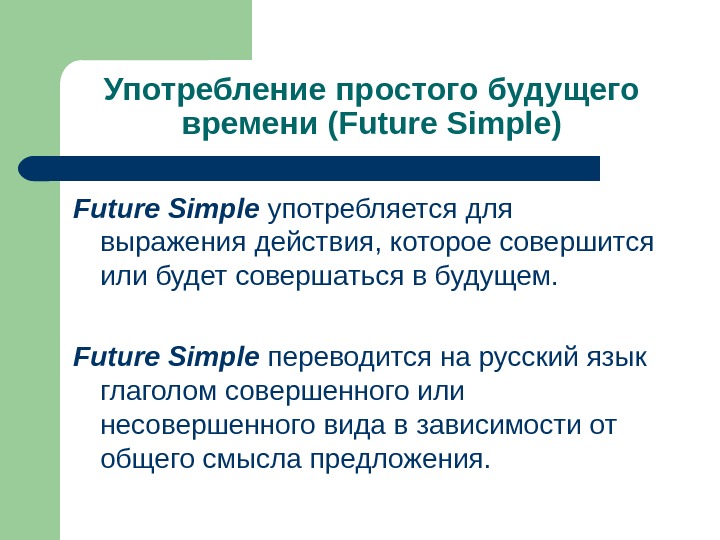
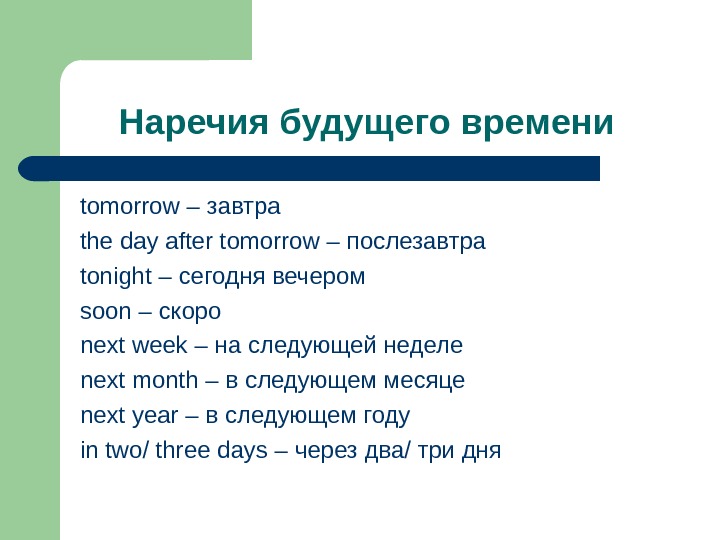
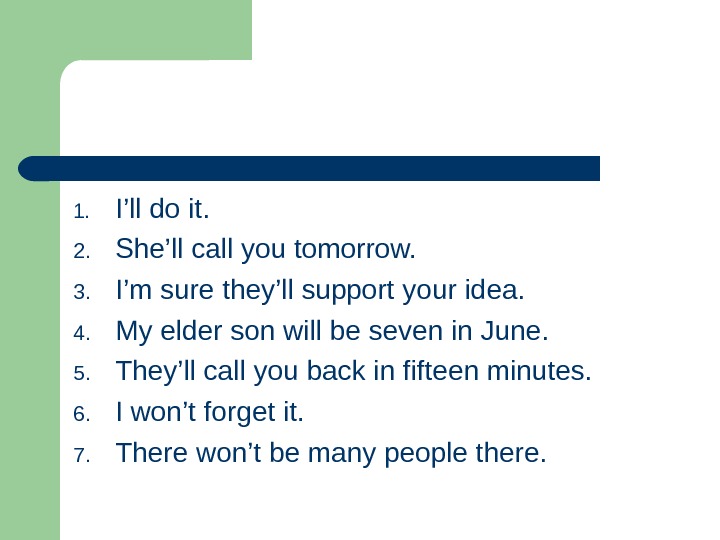

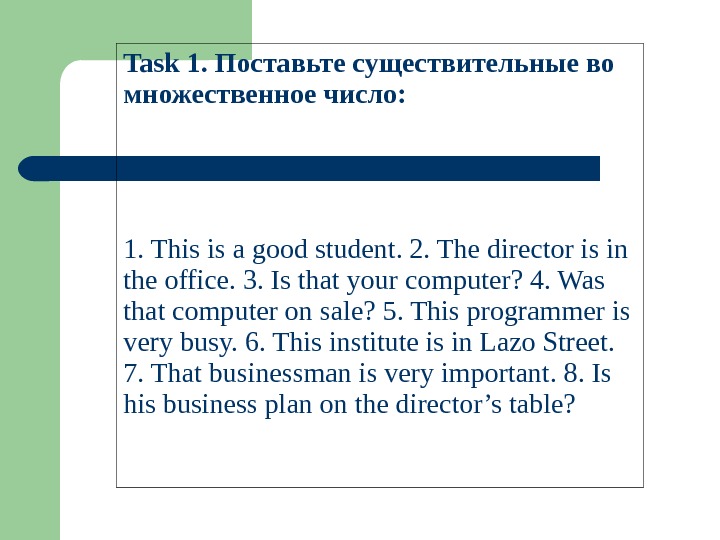
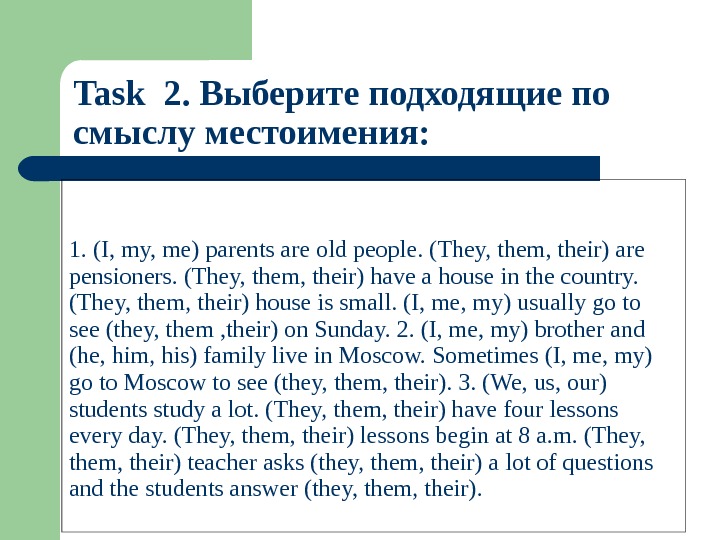
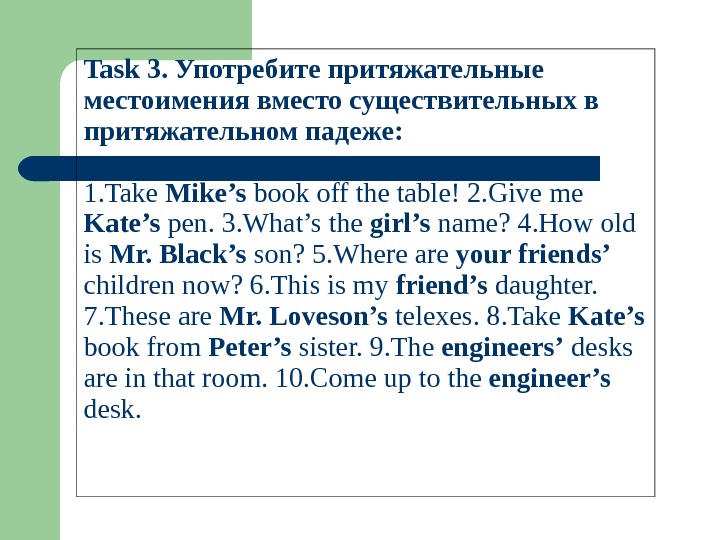
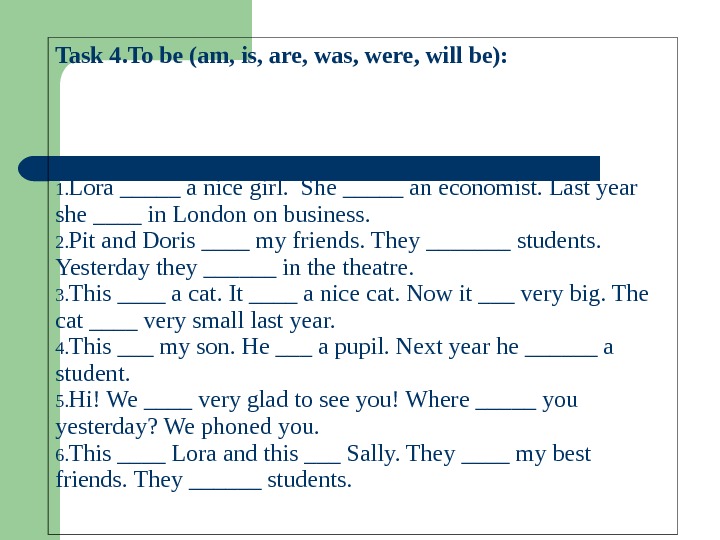
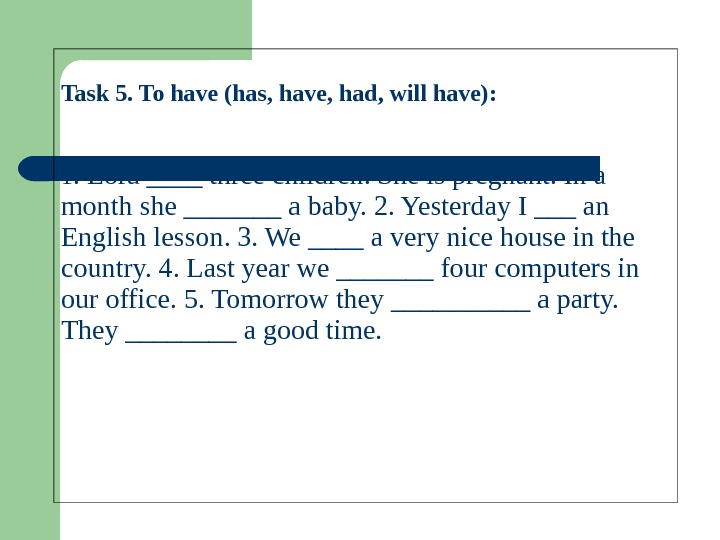
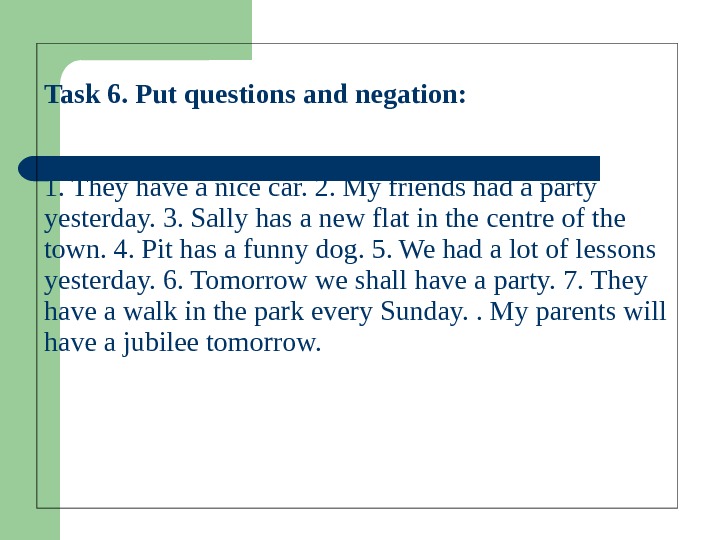
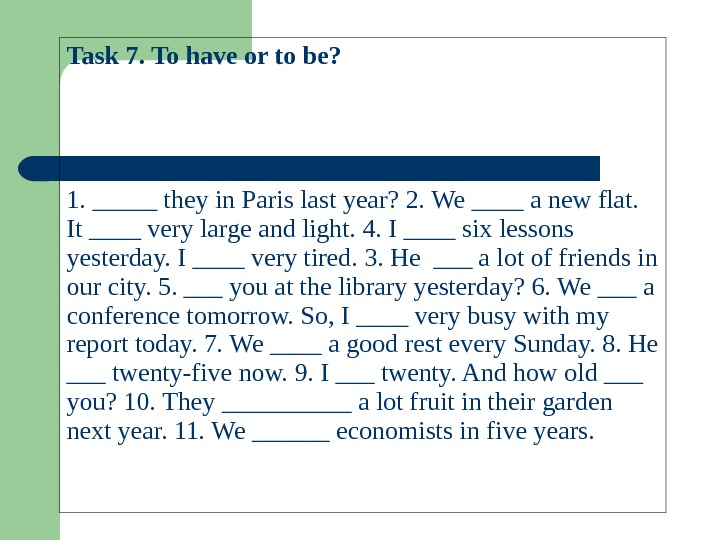
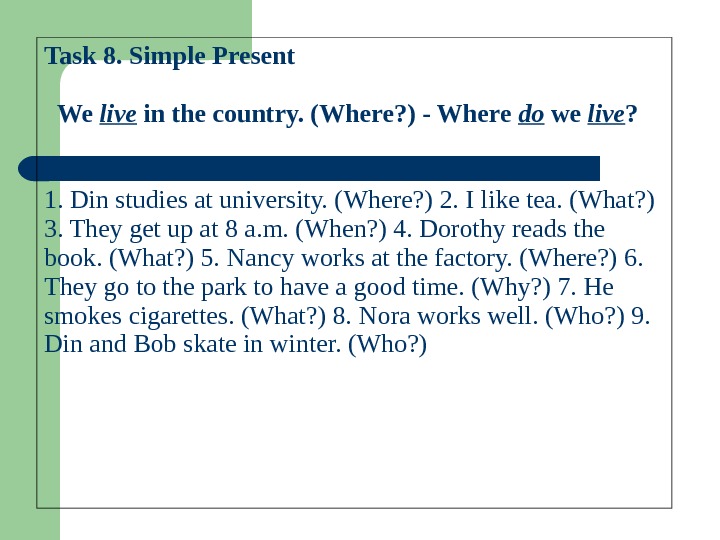


- Размер: 2.7 Mегабайта
- Количество слайдов: 125
Описание презентации Презентация Английский для начинающих I сем по слайдам
 Английский для начинающих English for Beginners Щеняева Т. Д. Бородич С. А.
Английский для начинающих English for Beginners Щеняева Т. Д. Бородич С. А.
 Английский алфавит Aa Bb Cc Dd Ee Ff Gg Hh Ii Jj Kk Ll Mm Nn Oo Pp Qq Rr Ss Tt Uu Vv Ww Xx Yy Zz
Английский алфавит Aa Bb Cc Dd Ee Ff Gg Hh Ii Jj Kk Ll Mm Nn Oo Pp Qq Rr Ss Tt Uu Vv Ww Xx Yy Zz
 Согласные буквы и звуки Bb Cc Dd Ff Gg Hh Jj Kk Ll Mm Nn Pp Qq Rr Ss Tt Vv Ww Xx Zz
Согласные буквы и звуки Bb Cc Dd Ff Gg Hh Jj Kk Ll Mm Nn Pp Qq Rr Ss Tt Vv Ww Xx Zz
 Гласные буквы и звуки Aa date fame make take bad bat map plan a an Ee be he she Pete bed pen set web
Гласные буквы и звуки Aa date fame make take bad bat map plan a an Ee be he she Pete bed pen set web
 Ii pie tie bike file bid kid did it Oo no pole sole vote on not spot bottom
Ii pie tie bike file bid kid did it Oo no pole sole vote on not spot bottom
 Uu duke fume tune student up but cup bubble put Yy by my system yes yoke baby city lady
Uu duke fume tune student up but cup bubble put Yy by my system yes yoke baby city lady
 Буквосочетания согласных ck -mb sh sc ch -bt -ssure th ch kn -ssia -tion tch ph -ssian -tial dg(e) qu que -ssion wh ng -lf -ss wr gn -lm -sion
Буквосочетания согласных ck -mb sh sc ch -bt -ssure th ch kn -ssia -tion tch ph -ssian -tial dg(e) qu que -ssion wh ng -lf -ss wr gn -lm -sion
 Буквосочетания гласных ai chain main pain ie field chief niece ay day play stay oo book look moon au fault sauce author oa boat coat ea teach easy cheap oi noisy point coin oy boy toy enjoy bread heavy o some son love other ee cheese street ou group you country couple ey key about house grey four your eu euro Europe
Буквосочетания гласных ai chain main pain ie field chief niece ay day play stay oo book look moon au fault sauce author oa boat coat ea teach easy cheap oi noisy point coin oy boy toy enjoy bread heavy o some son love other ee cheese street ou group you country couple ey key about house grey four your eu euro Europe
 Буквосочетания гласных с согласными -air chair, fair, pair, prairie -ar dark, farm, park, star -aw dawn, chaw, claw, paw wa- want, wash, watch war- war, ward, warden, warm -ear clear, dear, gear, fear, near, beard -ear bear -er- berg, dermis, perk, term
Буквосочетания гласных с согласными -air chair, fair, pair, prairie -ar dark, farm, park, star -aw dawn, chaw, claw, paw wa- want, wash, watch war- war, ward, warden, warm -ear clear, dear, gear, fear, near, beard -ear bear -er- berg, dermis, perk, term
 -er her -ere here, mere, sphere -ere there, where -eer deer, sheer -ier heir, their -igh- flight, night -ew dew, new, few -iew view
-er her -ere here, mere, sphere -ere there, where -eer deer, sheer -ier heir, their -igh- flight, night -ew dew, new, few -iew view
 -ir fir, first, girl -or actor, doctor, distributor -or- form, port, sport -oor door, floor -ore- more, shore -our our, hour, flour -ow now, down, town но: window -ur curb, turn -yr myrtle -yre tyre
-ir fir, first, girl -or actor, doctor, distributor -or- form, port, sport -oor door, floor -ore- more, shore -our our, hour, flour -ow now, down, town но: window -ur curb, turn -yr myrtle -yre tyre
 Структура предложения Простое повествовательное предложение Подлежащее сказуемое дополнение
Структура предложения Простое повествовательное предложение Подлежащее сказуемое дополнение
 Способы выражения подлежащего 1) Имя существительное – собственное или нарицательное: Jane, Nick, Harrison Ford, Belarus, Great Britain, Minsk, London, name, family, student, university, country, capital, economy, industry
Способы выражения подлежащего 1) Имя существительное – собственное или нарицательное: Jane, Nick, Harrison Ford, Belarus, Great Britain, Minsk, London, name, family, student, university, country, capital, economy, industry
 Имя существительное(определители) Определители стоят перед существительными, которые они сопровождают. Существительные обычно сопровождаются : 1. Артиклями( a, an, the) There is a lamp on the table. The director has just come. 2. Местоимениями a)some, any( Give me some stamps. ) b) this, these, that, those. ( This house is very old) c)my, his, her, its, our, your, their. ( Her dictionary is on the table) d)much, many, little, few, each, every, either, neither(There were many students at the meeting. He goes there every day. ) e) What? Which? Whose? ( Whose pencil is this? ) 3. Существительным в притяжательном падеже. ( Peter’s father is a doctor) 4. Прилагательным ( His first work was a great success )
Имя существительное(определители) Определители стоят перед существительными, которые они сопровождают. Существительные обычно сопровождаются : 1. Артиклями( a, an, the) There is a lamp on the table. The director has just come. 2. Местоимениями a)some, any( Give me some stamps. ) b) this, these, that, those. ( This house is very old) c)my, his, her, its, our, your, their. ( Her dictionary is on the table) d)much, many, little, few, each, every, either, neither(There were many students at the meeting. He goes there every day. ) e) What? Which? Whose? ( Whose pencil is this? ) 3. Существительным в притяжательном падеже. ( Peter’s father is a doctor) 4. Прилагательным ( His first work was a great success )
 Множественное число имен существительных ( исчисляемых) образуется с помощью окончания – s(es): а) cat – cat s /s/ student – student s /s/ game – game s /z/ dog – dog s /z/ file – file s/z/ day – day s /z/ bus – bus es /iz/ box – box es /iz/ house – hous es /iz/ bench – bench es /iz/ glass – glass es /iz/
Множественное число имен существительных ( исчисляемых) образуется с помощью окончания – s(es): а) cat – cat s /s/ student – student s /s/ game – game s /z/ dog – dog s /z/ file – file s/z/ day – day s /z/ bus – bus es /iz/ box – box es /iz/ house – hous es /iz/ bench – bench es /iz/ glass – glass es /iz/
 б) cit y – cit ies lad y – lad ies arm y – arm ies econom y – econom ies в) li fe – li ves wi fe – wi ves hal f – hal ves shel f — shel ves г) man – men woman – women /wimin/ child – children foot – feet mouse — mice
б) cit y – cit ies lad y – lad ies arm y – arm ies econom y – econom ies в) li fe – li ves wi fe – wi ves hal f – hal ves shel f — shel ves г) man – men woman – women /wimin/ child – children foot – feet mouse — mice
 Имена существительные неисчисляемые во множественном числе не употребляются: Knowledge business progress money Information equipment machinery traffic
Имена существительные неисчисляемые во множественном числе не употребляются: Knowledge business progress money Information equipment machinery traffic
 Притяжательный падеж имени существительного Форму притяжательного падежа имеют обычно одушевленные имена существительные, обозначающие живое существо, которому принадлежит какой-нибудь предмет, качество или признак.
Притяжательный падеж имени существительного Форму притяжательного падежа имеют обычно одушевленные имена существительные, обозначающие живое существо, которому принадлежит какой-нибудь предмет, качество или признак.
 Существительное в единственном числе образует притяжательный падеж при помощи – ’s , а во множественном числе только апострофа. Jane ’s sister Dan Brown ’s novel student ’s notebook child ’s toy cat ’s tail boys ’ voices girls ’ names eagles ’ nests
Существительное в единственном числе образует притяжательный падеж при помощи – ’s , а во множественном числе только апострофа. Jane ’s sister Dan Brown ’s novel student ’s notebook child ’s toy cat ’s tail boys ’ voices girls ’ names eagles ’ nests
 Принадлежность лицу, выраженному именем существительным, какого-нибудь предмета, качества или признака можно также выразить, поставив перед ним предлог of. the voice of the girl the hands of the mother the house of the farmer the clothes of the children the problems of the economists
Принадлежность лицу, выраженному именем существительным, какого-нибудь предмета, качества или признака можно также выразить, поставив перед ним предлог of. the voice of the girl the hands of the mother the house of the farmer the clothes of the children the problems of the economists
 Способы передачи падежных форм Значения большинства русских падежных форм передаются в английском языке формой общего падежа с предлогом или без предлога. Им. п. студент the student Род. п. студента (of) the student Дат. п. студенту ( to) the student Вин. п. студента the student Тв. п. студентом ( by) the student Пр. п. (о) студенте (about) the student
Способы передачи падежных форм Значения большинства русских падежных форм передаются в английском языке формой общего падежа с предлогом или без предлога. Им. п. студент the student Род. п. студента (of) the student Дат. п. студенту ( to) the student Вин. п. студента the student Тв. п. студентом ( by) the student Пр. п. (о) студенте (about) the student
 Артикль В английском языке перед именем существительным обычно стоит артикль. Различают неопределенный артикль a(an) и определенный артикль the.
Артикль В английском языке перед именем существительным обычно стоит артикль. Различают неопределенный артикль a(an) и определенный артикль the.
 Неопределенный артикль a(an) употребляется перед исчисляемыми существительным в единственном числе. Неопределенный артикль имеет форму a перед существительными, начинающимися с согласной, и форму an перед существительными, начинающимися с гласной. a country a businessman a manager a firm a company an economist an accountant an industry an employee
Неопределенный артикль a(an) употребляется перед исчисляемыми существительным в единственном числе. Неопределенный артикль имеет форму a перед существительными, начинающимися с согласной, и форму an перед существительными, начинающимися с гласной. a country a businessman a manager a firm a company an economist an accountant an industry an employee
 Определенный артикль the может употребляться перед любым нарицательным существительным как в единственном, так и во множественном числе. the money the information the economy the economists the industries
Определенный артикль the может употребляться перед любым нарицательным существительным как в единственном, так и во множественном числе. the money the information the economy the economists the industries
 Употребляя неопределенный артикль, мы называем предмет (вещь, живое существо) и представляем его как один из класса ему подобных.
Употребляя неопределенный артикль, мы называем предмет (вещь, живое существо) и представляем его как один из класса ему подобных.
 Определенный артикль (the) употребляется перед существительным, обозначающим предмет а) уже известный слушающему (читающему) из предыдущей информации; б) единственный в данной ситуации; в) единственный вообще во всех ситуациях.
Определенный артикль (the) употребляется перед существительным, обозначающим предмет а) уже известный слушающему (читающему) из предыдущей информации; б) единственный в данной ситуации; в) единственный вообще во всех ситуациях.
 1. This is a resource. The resource is important. 2. This is a city. The city is old but very nice. 3. They are at the bank now. 4. There are no stars in the sky tonight. 5. This is the only book on this problem.
1. This is a resource. The resource is important. 2. This is a city. The city is old but very nice. 3. They are at the bank now. 4. There are no stars in the sky tonight. 5. This is the only book on this problem.
 Атрибутивные словосочетания
Атрибутивные словосочетания
 Атрибутивные словосочетания образуются из двух или более существительных (N+N или N+N+N…). Существительные выполняют функцию определения. Атрибутивные словосочетания бывают двучленными и многочленными.
Атрибутивные словосочетания образуются из двух или более существительных (N+N или N+N+N…). Существительные выполняют функцию определения. Атрибутивные словосочетания бывают двучленными и многочленными.
 Первый член двучленного словосочетания может переводиться на русский язык: 1. Прилагательным: Emergency meeting – внеочередное/экстренное заседание Power station – электрическая станция 2. Существительным в родительном падеже : В синтаксической группе, состоящей из нескольких существительных без предлогов, последнее слово в такой цепочке всегда является основным , а все остальные будут определениями к нему. system design — проектирование системы design system – система проектирования Incomes policy – политика доходов Wage rise – повышение зарплаты
Первый член двучленного словосочетания может переводиться на русский язык: 1. Прилагательным: Emergency meeting – внеочередное/экстренное заседание Power station – электрическая станция 2. Существительным в родительном падеже : В синтаксической группе, состоящей из нескольких существительных без предлогов, последнее слово в такой цепочке всегда является основным , а все остальные будут определениями к нему. system design — проектирование системы design system – система проектирования Incomes policy – политика доходов Wage rise – повышение зарплаты
 3. Существительным с предлогом: Strike warning – предупреждение о забастовке Disarmament conference – конференция по разоружению 4. Приложением: Woman doctor – женщина-врач Railway engineer – инженер-железнодорожник 5. С помощью причастного оборота: Earth fuel – топливо, имеющееся в недрах земли 6. Прочими описательными средствами: The idea man – человек, у которого родилась идея (мысль) Wage deadlock – тупик, в который зашли переговоры о повышении заработной платы
3. Существительным с предлогом: Strike warning – предупреждение о забастовке Disarmament conference – конференция по разоружению 4. Приложением: Woman doctor – женщина-врач Railway engineer – инженер-железнодорожник 5. С помощью причастного оборота: Earth fuel – топливо, имеющееся в недрах земли 6. Прочими описательными средствами: The idea man – человек, у которого родилась идея (мысль) Wage deadlock – тупик, в который зашли переговоры о повышении заработной платы
 Многочленные словосочетания В зависимости от смысловых связей многочленные словосочетания могут переводиться по принципу двучленных словосочетаний. Bank Credit Regulation Committee — комитет по регулированию банковских кредитов
Многочленные словосочетания В зависимости от смысловых связей многочленные словосочетания могут переводиться по принципу двучленных словосочетаний. Bank Credit Regulation Committee — комитет по регулированию банковских кредитов
 Местоимение ( Pronoun) Личные местоимения Общий падеж Косвенный падеж I – я me – меня, мне You – ты you – тебя, тебе He – он him – его, ему She – она her – её, ей It – он, она; это it – его, ему; её, ей; это We – мы us – нас, нам You – вы you – вас, вам They – они them – их, им
Местоимение ( Pronoun) Личные местоимения Общий падеж Косвенный падеж I – я me – меня, мне You – ты you – тебя, тебе He – он him – его, ему She – она her – её, ей It – он, она; это it – его, ему; её, ей; это We – мы us – нас, нам You – вы you – вас, вам They – они them – их, им
 Притяжательные местоимения My – мой, -я, -ё, -и mine Your – твой; -я, -ё, -и yours His — его his Her — её hers Its — его, её its Our – наш, -а, -е, -и ours Your – ваш, -а, -и yours Their — их theirs
Притяжательные местоимения My – мой, -я, -ё, -и mine Your – твой; -я, -ё, -и yours His — его his Her — её hers Its — его, её its Our – наш, -а, -е, -и ours Your – ваш, -а, -и yours Their — их theirs
 Указательные местоимения Ед. ч. Мн. ч. This – этот, эта, это These – эти That – тот, та, то Those – те Such – такой, такая, такие
Указательные местоимения Ед. ч. Мн. ч. This – этот, эта, это These – эти That – тот, та, то Those – те Such – такой, такая, такие
 Неопределенные и отрицательные местоимения Some – какой-то, какой-нибудь, какой-либо Somebody, someone — кто-то , кто-нибудь Something — что-нибудь (употребляются в утвердительных предложениях)
Неопределенные и отрицательные местоимения Some – какой-то, какой-нибудь, какой-либо Somebody, someone — кто-то , кто-нибудь Something — что-нибудь (употребляются в утвердительных предложениях)
 Any – какой-то, какой-нибудь Anybody, anyone – кто-либо, кто-нибудь Anything — что-либо, что-нибудь (употребляются в вопросительных и отрицательных предложениях) Any – любой (в утвердительных предложениях)
Any – какой-то, какой-нибудь Anybody, anyone – кто-либо, кто-нибудь Anything — что-либо, что-нибудь (употребляются в вопросительных и отрицательных предложениях) Any – любой (в утвердительных предложениях)
 No – никакой, никакая , никакие Nobody, no one – никто Nothing – ничто (употребляются в отрицательных предложениях)
No – никакой, никакая , никакие Nobody, no one – никто Nothing – ничто (употребляются в отрицательных предложениях)
 Утвердительные предложения Отрицательные предложения Вопросительные предложения Give me some books on finance. We don’t have any magazines here. Are there any companies there? We need some information about the prices for a model. There isn’t any time to do this work. Do you have any money?
Утвердительные предложения Отрицательные предложения Вопросительные предложения Give me some books on finance. We don’t have any magazines here. Are there any companies there? We need some information about the prices for a model. There isn’t any time to do this work. Do you have any money?
 1. He has some friends in Great Britain. 2. There are some students in the classroom. 3. Somebody is at the door. 4. There isn’t anything in the box. 5. Some students are absent today. 6. There is some progress in the national economy this year.
1. He has some friends in Great Britain. 2. There are some students in the classroom. 3. Somebody is at the door. 4. There isn’t anything in the box. 5. Some students are absent today. 6. There is some progress in the national economy this year.
 Возвратные местоимения образуются путем прибавления к притяжательным местоимениям my, our, your, личным местоимениям him, her, it, them, и неопределенному местоимению one окончания self ( к местоимениям ед. ч. ) и selves ( к местоимениям мн. ч. )
Возвратные местоимения образуются путем прибавления к притяжательным местоимениям my, our, your, личным местоимениям him, her, it, them, и неопределенному местоимению one окончания self ( к местоимениям ед. ч. ) и selves ( к местоимениям мн. ч. )
 Единственное число Множественное число I — myself We — ourselves You — yourself You — yourselves He — himself She — herself They — themselves It — itself One — oneself
Единственное число Множественное число I — myself We — ourselves You — yourself You — yourselves He — himself She — herself They — themselves It — itself One — oneself
 Возвратные местоимения употребляются в функции дополнения после ряда глаголов. Они соответствуют в русском языке: 1. Частице –ся(-сь) : She cut herself. – Она порезала сь. He defended himself bravely. – Он храбро защищал ся. Go and wash yourself , Mary. – Пойди и умой ся , Мария.
Возвратные местоимения употребляются в функции дополнения после ряда глаголов. Они соответствуют в русском языке: 1. Частице –ся(-сь) : She cut herself. – Она порезала сь. He defended himself bravely. – Он храбро защищал ся. Go and wash yourself , Mary. – Пойди и умой ся , Мария.
 2. Возвратному местоимению себя ( себе , собой ): He bought himself a new coat. – Он купил себе новое пальто. She spoke very little of herself. – Она очень мало говорила о себе. I am not pleased with myself. – Я недоволен собой.
2. Возвратному местоимению себя ( себе , собой ): He bought himself a new coat. – Он купил себе новое пальто. She spoke very little of herself. – Она очень мало говорила о себе. I am not pleased with myself. – Я недоволен собой.
 3. Возвратному местоимению сам (сама, само, сами) для усиления значения существительного или местоимения. В этом случае они могут стоять как в конце предложения, так и после слова, которое они усиливают.
3. Возвратному местоимению сам (сама, само, сами) для усиления значения существительного или местоимения. В этом случае они могут стоять как в конце предложения, так и после слова, которое они усиливают.
 I saw it myself. I myself saw it. — Я сам это видел. He did it himself. He himself did it. – Он сам это сделал. They said so themselves. They themselves said so. – Они сами это сказали.
I saw it myself. I myself saw it. — Я сам это видел. He did it himself. He himself did it. – Он сам это сделал. They said so themselves. They themselves said so. – Они сами это сказали.
 47 СТЕПЕНИ СРАВНЕНИЯ ПРИЛАГАТЕЛЬНЫХ : I II III Положительная Сравнительная Превосходная большой больше самый большой
47 СТЕПЕНИ СРАВНЕНИЯ ПРИЛАГАТЕЛЬНЫХ : I II III Положительная Сравнительная Превосходная большой больше самый большой
 48 СПОСОБЫ ОБРАЗОВАНИЯ СТЕПЕНЕЙ СРАВНЕНИЯ : 1 СПОСОБ 1 2 3 tall + er = tall er the tall + est = tall est strong strong er the strong est. Adj Adj
48 СПОСОБЫ ОБРАЗОВАНИЯ СТЕПЕНЕЙ СРАВНЕНИЯ : 1 СПОСОБ 1 2 3 tall + er = tall er the tall + est = tall est strong strong er the strong est. Adj Adj
 49 ОРФОГРАММЫ : 1. + er / est nice – nic e er — the nic e est large — larg er — the larg est + er / est I i happy — happy er — the happy est 2. heavy – heav i er — the heav i est + er / est 3. fat — fat t er — the fat t est big – big g er – the big g est NB! Буквы w, x – не удваиваются. … e … согласная y i … согласная (ударная гласная) согласная Х
49 ОРФОГРАММЫ : 1. + er / est nice – nic e er — the nic e est large — larg er — the larg est + er / est I i happy — happy er — the happy est 2. heavy – heav i er — the heav i est + er / est 3. fat — fat t er — the fat t est big – big g er – the big g est NB! Буквы w, x – не удваиваются. … e … согласная y i … согласная (ударная гласная) согласная Х
 50 СЛУЧАИ ИСПОЛЬЗОВАНИЯ 1 способа образования степеней сравнения 1. Односложные : new – new er – the new est 2. Двусложные, оканчивающиеся на e, er, y, ow : narrow – narrow er – the narrow est 3. Трехсложные , оканчивающиеся на e : polite – polit er – the polit est 4. Исключения : common – common er – the common est quiet – quiet er – the quiet est NB ! Наречия, оканчивающиеся на – l y , образуют степени сравнения по второму способу, за исключением слова early.
50 СЛУЧАИ ИСПОЛЬЗОВАНИЯ 1 способа образования степеней сравнения 1. Односложные : new – new er – the new est 2. Двусложные, оканчивающиеся на e, er, y, ow : narrow – narrow er – the narrow est 3. Трехсложные , оканчивающиеся на e : polite – polit er – the polit est 4. Исключения : common – common er – the common est quiet – quiet er – the quiet est NB ! Наречия, оканчивающиеся на – l y , образуют степени сравнения по второму способу, за исключением слова early.
 Степени сравнения прилагательных Положительная степень Сравнительная степень Превосходная степень shorter the shortest nicer the nicest bigger the biggest easy easier the easiest early earlier the earliest simpler the simplest
Степени сравнения прилагательных Положительная степень Сравнительная степень Превосходная степень shorter the shortest nicer the nicest bigger the biggest easy easier the easiest early earlier the earliest simpler the simplest
 52 СПОСОБЫ ОБРАЗОВАНИЯ СТЕПЕНЕЙ СРАВНЕНИЯ 2 СПОСОБ : 1 2 3 beautiful more beautiful the most beautiful dangerous more dangerous the most dangerous Adj Adj
52 СПОСОБЫ ОБРАЗОВАНИЯ СТЕПЕНЕЙ СРАВНЕНИЯ 2 СПОСОБ : 1 2 3 beautiful more beautiful the most beautiful dangerous more dangerous the most dangerous Adj Adj
 Положительная степень Сравнительная степень Превосходная степень beautiful more beautiful the most beautiful expensive more expensive the most expensive useful more useful the most useful modern more modern the most modern tired more tired the most tired
Положительная степень Сравнительная степень Превосходная степень beautiful more beautiful the most beautiful expensive more expensive the most expensive useful more useful the most useful modern more modern the most modern tired more tired the most tired
 54 ИСКЛЮЧЕНИЯ good – better – the best This house is good. This house is better than that. This house is the best of the three.
54 ИСКЛЮЧЕНИЯ good – better – the best This house is good. This house is better than that. This house is the best of the three.
 55 bad – worse – the worst The first house is … . The second house is … than the first one. The third house is … of the three.
55 bad – worse – the worst The first house is … . The second house is … than the first one. The third house is … of the three.
 56 little – less – the least There is little light in this room. There is less light in this room. There is the least light in this room.
56 little – less – the least There is little light in this room. There is less light in this room. There is the least light in this room.
 57 much — more — the most many There are many apples on the plate. There are more apples in the basket. There are the most apples in the box.
57 much — more — the most many There are many apples on the plate. There are more apples in the basket. There are the most apples in the box.
 58 far – farther – the farthest further — the furthest This church is far. This church is even farther. This church is the farthest of all. NB! Read further , please!
58 far – farther – the farthest further — the furthest This church is far. This church is even farther. This church is the farthest of all. NB! Read further , please!
 59 old – older – the oldest elder — the eldest (in the family) This portrait is old. This is my elder sister. This portrait is even older. This portrait is the oldest.
59 old – older – the oldest elder — the eldest (in the family) This portrait is old. This is my elder sister. This portrait is even older. This portrait is the oldest.
 Положительная степень Сравнительная степень Превосходная степень good better The best bad worse The worst little less The least older/ elder the oldest/ the eldest many more the most
Положительная степень Сравнительная степень Превосходная степень good better The best bad worse The worst little less The least older/ elder the oldest/ the eldest many more the most
 1. Образуйте сравнительную и превосходную степени сравнения прилагательных. Few, high, low, fast, easy, cheap, necessary, proper, big, important, essential, old, expensive, small, happy.
1. Образуйте сравнительную и превосходную степени сравнения прилагательных. Few, high, low, fast, easy, cheap, necessary, proper, big, important, essential, old, expensive, small, happy.
 2. Переведите на русский язык. 1. Let’s discuss more important problems today. 2. It’s the most useful book on the subject. 3. Saturday is the best day of the week, and Monday is the worst! 4. He is one of my oldest friends.
2. Переведите на русский язык. 1. Let’s discuss more important problems today. 2. It’s the most useful book on the subject. 3. Saturday is the best day of the week, and Monday is the worst! 4. He is one of my oldest friends.
 5. I’m the eldest in the family. 6. This room is bigger, and that one is smaller. 7. London is older than ( чем) Sheffield. 8. Russian grammar is more difficult than English grammar. 9. He’s five years older than his wife. 10. I’m more careful driver than him.
5. I’m the eldest in the family. 6. This room is bigger, and that one is smaller. 7. London is older than ( чем) Sheffield. 8. Russian grammar is more difficult than English grammar. 9. He’s five years older than his wife. 10. I’m more careful driver than him.
 64 as — такой же … как William Hogarth is as famous as sir Joshua Reynolds. not so (as) as — не такой … как Lilla Cabot Perry is not so popular as Pablo Picasso. Adj
64 as — такой же … как William Hogarth is as famous as sir Joshua Reynolds. not so (as) as — не такой … как Lilla Cabot Perry is not so popular as Pablo Picasso. Adj
 65 Put the adjectives in brackets into the correct form: 1. The weather is (fine) ______ today than it was yesterday. 2. London is one of the (big) ________ city in the world. 3. This sentence is (difficult) __________ than the first one. 4. This dictation is not so (easy) ______ as the last one. 5. Which is the (high) ________ mountain in the world? 6. His face was getting (red) ______ and (red) ______. 7. This present is the (good) _________ of all. 8. Your composition was the (bad) ________ in the class. 9. The cat will be much (happy) ________ in her new home. 10. I am not so (tall ) _______ as Jimmy. 11. Athens is (far) ______ from London than Rome is.
65 Put the adjectives in brackets into the correct form: 1. The weather is (fine) ______ today than it was yesterday. 2. London is one of the (big) ________ city in the world. 3. This sentence is (difficult) __________ than the first one. 4. This dictation is not so (easy) ______ as the last one. 5. Which is the (high) ________ mountain in the world? 6. His face was getting (red) ______ and (red) ______. 7. This present is the (good) _________ of all. 8. Your composition was the (bad) ________ in the class. 9. The cat will be much (happy) ________ in her new home. 10. I am not so (tall ) _______ as Jimmy. 11. Athens is (far) ______ from London than Rome is.
![66 Answer the following questions [1]: 1. Tom is taller than Richard is taller than Fred. 66 Answer the following questions [1]: 1. Tom is taller than Richard is taller than Fred.](/docs//angliyskiy_dlya_nachinayuschih_i_sem_images/angliyskiy_dlya_nachinayuschih_i_sem_65.jpg) 66 Answer the following questions [1]: 1. Tom is taller than Richard is taller than Fred. Which of the boys is the tallest? Which is the shortest? 2. It is hotter in Athens than it is in London. It is not as hot in Oslo as it is in London. Which of the three cities is the hottest? Which is the coldest? 3. A train goes faster than a ship but not so fast as an airplane. Which is the fastest ? Which is the slowest?
66 Answer the following questions [1]: 1. Tom is taller than Richard is taller than Fred. Which of the boys is the tallest? Which is the shortest? 2. It is hotter in Athens than it is in London. It is not as hot in Oslo as it is in London. Which of the three cities is the hottest? Which is the coldest? 3. A train goes faster than a ship but not so fast as an airplane. Which is the fastest ? Which is the slowest?
 1 2 3 4 5 6 7 8 9 10 11 12 13 14 15 One Two Three Four Fife Six Seven Eight Nine Ten Eleven Twelve Thir teen Four teen Fif teen 20 21 26 30 40 50 60 70 80 90 1000000 Twen ty Twenty-one Twenty-six Thir ty For ty Fif ty Six ty Seven ty Eigh ty Nine ty Ahundred Athousand Amillion. Числительные
1 2 3 4 5 6 7 8 9 10 11 12 13 14 15 One Two Three Four Fife Six Seven Eight Nine Ten Eleven Twelve Thir teen Four teen Fif teen 20 21 26 30 40 50 60 70 80 90 1000000 Twen ty Twenty-one Twenty-six Thir ty For ty Fif ty Six ty Seven ty Eigh ty Nine ty Ahundred Athousand Amillion. Числительные
 Task 11. Прочитайте следующие числительные: 1, 7, 18, 11, 13, 15, 48, 105, 98, 143, 21321, 65, 3, 7 543, 321543, 6321607, 794432904 даты : 12 апреля 1645 года; 1 января 2005 года; 9 сентября 1985 года; 11 мая 1376 года
Task 11. Прочитайте следующие числительные: 1, 7, 18, 11, 13, 15, 48, 105, 98, 143, 21321, 65, 3, 7 543, 321543, 6321607, 794432904 даты : 12 апреля 1645 года; 1 января 2005 года; 9 сентября 1985 года; 11 мая 1376 года
 Глагол to be «быть» Спряжение глагола to be в настоящем времени to be a student – быть студентом to be … years old – о возрасте to be from – быть родом из to be married – быть женатым, замужем to be unmarried – быть неженатым, незамужем
Глагол to be «быть» Спряжение глагола to be в настоящем времени to be a student – быть студентом to be … years old – о возрасте to be from – быть родом из to be married – быть женатым, замужем to be unmarried – быть неженатым, незамужем
 I am a student. I’m a student. You are a student. You’re a student. She is a student. She’s a student. He is a student. He’s a student. It is a student. It’s a student. We are students. We’re students. You are students. You’re students. They are students. They’re students.
I am a student. I’m a student. You are a student. You’re a student. She is a student. She’s a student. He is a student. He’s a student. It is a student. It’s a student. We are students. We’re students. You are students. You’re students. They are students. They’re students.
 Отрицательная форма глагола to be I am not a doctor. I’ m not a doctor. You are not a doctor. You aren’t a doctor. She is not a doctor. She isn’t a doctor. He is not a doctor. He isn’t a doctor. It is not a doctor. It isn’t a doctor. We are not doctors. We aren’t doctors. You are not doctors. You aren’t doctors. They are not doctors. They aren’t doctors.
Отрицательная форма глагола to be I am not a doctor. I’ m not a doctor. You are not a doctor. You aren’t a doctor. She is not a doctor. She isn’t a doctor. He is not a doctor. He isn’t a doctor. It is not a doctor. It isn’t a doctor. We are not doctors. We aren’t doctors. You are not doctors. You aren’t doctors. They are not doctors. They aren’t doctors.
 Вопросительная форма глагола to be Общий вопрос Am I a student? Yes, I am. No, I am not. Are you a student? Is she a student? Yes, she is. No, she isn’t. Is he a student? Is it a student? Are we students? Yes, we are. No, we aren’t. Are you students? Are they students
Вопросительная форма глагола to be Общий вопрос Am I a student? Yes, I am. No, I am not. Are you a student? Is she a student? Yes, she is. No, she isn’t. Is he a student? Is it a student? Are we students? Yes, we are. No, we aren’t. Are you students? Are they students
 Специальный вопрос Специальные слова What – что, какой Which – который Where – где, куда When – когда Who — кто How – как How old – сколько лет How many – сколько How much — сколько What is your name? My name is Victor. How old are you? I’m 18 years old. What is he? He’s an economist. Where are you from? I’m from Belarus. When is his birthday? It is on Friday.
Специальный вопрос Специальные слова What – что, какой Which – который Where – где, куда When – когда Who — кто How – как How old – сколько лет How many – сколько How much — сколько What is your name? My name is Victor. How old are you? I’m 18 years old. What is he? He’s an economist. Where are you from? I’m from Belarus. When is his birthday? It is on Friday.
 Вводный оборот there is/ there are Для выражения наличия или существования в определенном месте или отрезке времени лица или предмета употребляется вводный оборот there is / there are со значением имеется , находится , есть , существует.
Вводный оборот there is/ there are Для выражения наличия или существования в определенном месте или отрезке времени лица или предмета употребляется вводный оборот there is / there are со значением имеется , находится , есть , существует.
 Оборот there is/ there are стоит в начале предложения ; за ним стоит подлежащее, за которым следует обстоятельство места или времени. В русском языке соответствующие предложения начинаются с обстоятельства места или времени.
Оборот there is/ there are стоит в начале предложения ; за ним стоит подлежащее, за которым следует обстоятельство места или времени. В русском языке соответствующие предложения начинаются с обстоятельства места или времени.
 There is a telephone in this room. В этой комнате есть (имеется) телефон. There are many apple trees in the garden. В саду есть много яблонь. There are many children there. Там много детей.
There is a telephone in this room. В этой комнате есть (имеется) телефон. There are many apple trees in the garden. В саду есть много яблонь. There are many children there. Там много детей.
 Оборот there is/ there are в отрицательном предложении There isn’t a teacher in the classroom. There aren’t any computers here. Оборот there is/ there are в вопросительном предложении Is there a teacher in the classroom? Yes, there is. No, there isn’t. Are there any computers here? Yes, there are. No, there aren’t.
Оборот there is/ there are в отрицательном предложении There isn’t a teacher in the classroom. There aren’t any computers here. Оборот there is/ there are в вопросительном предложении Is there a teacher in the classroom? Yes, there is. No, there isn’t. Are there any computers here? Yes, there are. No, there aren’t.
 I. Переведите следующие предложения с оборотом there is/ there are. 1. There is a disco near the university. 2. There are many tourists in the city. 3. There isn’t a library near the university. 4. There aren’t many hospitals in the town. 5. Is there a television in the room? 6. How many boys and girls are there in the family?
I. Переведите следующие предложения с оборотом there is/ there are. 1. There is a disco near the university. 2. There are many tourists in the city. 3. There isn’t a library near the university. 4. There aren’t many hospitals in the town. 5. Is there a television in the room? 6. How many boys and girls are there in the family?
 II. Вставьте there is или there are. 1. … many trains to Moscow. ( train — поезд ) 2. … much snow on the ground. ( snow – снег ground – земля ) 3. … no time to see my friend. ( time – время to see – видеть ) 4. … many children in the swimming pool? ( swimming pool – бассейн ) 5. … no mistakes in your test. ( mistake – ошибка ) 6. … a garden near your house? ( garden – с ад near – около, возле)
II. Вставьте there is или there are. 1. … many trains to Moscow. ( train — поезд ) 2. … much snow on the ground. ( snow – снег ground – земля ) 3. … no time to see my friend. ( time – время to see – видеть ) 4. … many children in the swimming pool? ( swimming pool – бассейн ) 5. … no mistakes in your test. ( mistake – ошибка ) 6. … a garden near your house? ( garden – с ад near – около, возле)
 Глагол to be в простом прошедшем времени (Past Simple) was – был, была, было were – были 1. I (he, she, it) was at the university yesterday. 2. We (you, they) were at the university yesterday.
Глагол to be в простом прошедшем времени (Past Simple) was – был, была, было were – были 1. I (he, she, it) was at the university yesterday. 2. We (you, they) were at the university yesterday.
 Наречия прошедшего времени (Past Simple) yesterday – вчера the day before yesterday – позавчера ago – назад the other day – на днях last week – на прошлой неделе last month – в прошлом месяце last year – в прошлом году then – тогда when — когда
Наречия прошедшего времени (Past Simple) yesterday – вчера the day before yesterday – позавчера ago – назад the other day – на днях last week – на прошлой неделе last month – в прошлом месяце last year – в прошлом году then – тогда when — когда
 Отрицательные и вопросительные предложения с глаголом to be в Past Simple I was not (wasn’t) Was I …? He was not (wasn’t) Was he …? She was not (wasn’t) Was she … ? It was not (wasn’t) Was it …? We were not (weren’t) Were we … ? You were not (weren’t) Were you … ? They were not (weren’t) Were they … ?
Отрицательные и вопросительные предложения с глаголом to be в Past Simple I was not (wasn’t) Was I …? He was not (wasn’t) Was he …? She was not (wasn’t) Was she … ? It was not (wasn’t) Was it …? We were not (weren’t) Were we … ? You were not (weren’t) Were you … ? They were not (weren’t) Were they … ?
 1. She wasn’t at work last week. Her children were ill. 2. The economist’s prediction was correct. 3. The prices for the services weren’t high at that time. 4. There weren’t many plants in the area.
1. She wasn’t at work last week. Her children were ill. 2. The economist’s prediction was correct. 3. The prices for the services weren’t high at that time. 4. There weren’t many plants in the area.
 Глагол to be в простом будущем времени (Future Simple) Will be – был, была, было , были 1. I (he, she, it, you, they) will be at the university tomorrow.
Глагол to be в простом будущем времени (Future Simple) Will be – был, была, было , были 1. I (he, she, it, you, they) will be at the university tomorrow.
 Отрицательные и вопросительные предложения с глаголом to be во Future Simple I shall not (shan’t)be… Shall I be…? He will not (won’t)be… Will he be…? She will not (won’t)be. . . Will she be… ? It will not (won’t)be… Will it be…? We shall not (shan’t)be… Shall we be… ? You will not (won’t)be… Will you be… ? They will not (won’t)be… Will they be… ?
Отрицательные и вопросительные предложения с глаголом to be во Future Simple I shall not (shan’t)be… Shall I be…? He will not (won’t)be… Will he be…? She will not (won’t)be. . . Will she be… ? It will not (won’t)be… Will it be…? We shall not (shan’t)be… Shall we be… ? You will not (won’t)be… Will you be… ? They will not (won’t)be… Will they be… ?
 Наречия будущего времени tomorrow – завтра the day after tomorrow – послезавтра tonight – сегодня вечером soon – скоро next week – на следующей неделе next month – в следующем месяце next year – в следующем году in two/ three days – через два/ три дня
Наречия будущего времени tomorrow – завтра the day after tomorrow – послезавтра tonight – сегодня вечером soon – скоро next week – на следующей неделе next month – в следующем месяце next year – в следующем году in two/ three days – через два/ три дня
 Переведите предложения на русский язык 1. Next year he’ll be 25. 2. Telephone me this evening. I’ll be at home. 3. They won’t be here tomorrow. 4. Will you be at home this evening? 5. The weather will be nice tomorrow.
Переведите предложения на русский язык 1. Next year he’ll be 25. 2. Telephone me this evening. I’ll be at home. 3. They won’t be here tomorrow. 4. Will you be at home this evening? 5. The weather will be nice tomorrow.
 Глагол to have «иметь» Спряжение глагола to have в настоящем времени I have Я имею/ У меня есть You have Ты имеешь/ У тебя есть He has Он имеет/ У него есть She has Она имеет/ У неё есть It has Он/ Она имеет We have Мы имеем/ У нас есть You have Вы имеете/ У вас есть They have Они имеют/ У них есть
Глагол to have «иметь» Спряжение глагола to have в настоящем времени I have Я имею/ У меня есть You have Ты имеешь/ У тебя есть He has Он имеет/ У него есть She has Она имеет/ У неё есть It has Он/ Она имеет We have Мы имеем/ У нас есть You have Вы имеете/ У вас есть They have Они имеют/ У них есть
 Отрицательная форма глагола to have образуется при помощи частицы not. I have not ( haven’t ) a watch. He has not ( hasn’t ) any book on this subject. We have no time to go there. В вопросительной форме глагол to have ставится перед подлежащим. Have you a good car? Yes, I have. No, I haven’t. Has she a big family? Yes, she has. No, she hasn’t.
Отрицательная форма глагола to have образуется при помощи частицы not. I have not ( haven’t ) a watch. He has not ( hasn’t ) any book on this subject. We have no time to go there. В вопросительной форме глагол to have ставится перед подлежащим. Have you a good car? Yes, I have. No, I haven’t. Has she a big family? Yes, she has. No, she hasn’t.
 Устойчивые выражения с глаголом to have To have breakfast – завтракать To have dinner – обедать To have supper – ужинать To have a rest – отдыхать To have a talk – говорить To have a good time – хорошо проводить время
Устойчивые выражения с глаголом to have To have breakfast – завтракать To have dinner – обедать To have supper – ужинать To have a rest – отдыхать To have a talk – говорить To have a good time – хорошо проводить время
 I. Переведите следующие предложения. 1. I haven’t her address. ( her – её ) 2. He has very interesting books on economics. (very – очень; on – по) 3. Usually at weekends we have a good time. (usually – обычно; at – на, по) 4. Ann never has supper. (never – никогда) 5. Have you many relatives in Minsk? (relatives – родственники)
I. Переведите следующие предложения. 1. I haven’t her address. ( her – её ) 2. He has very interesting books on economics. (very – очень; on – по) 3. Usually at weekends we have a good time. (usually – обычно; at – на, по) 4. Ann never has supper. (never – никогда) 5. Have you many relatives in Minsk? (relatives – родственники)
 Повелительное наклонение выражает побуждение к действию, т. е. приказание, просьбу, совет и т. д. Повелительное наклонение образуется глаголом без частицы to.
Повелительное наклонение выражает побуждение к действию, т. е. приказание, просьбу, совет и т. д. Повелительное наклонение образуется глаголом без частицы to.
 Утвердительная форма повелительного наклонения совпадает с формой инфинитива без частицы to. to read читать Read! Читайте! Читай! to go идти Go! Идите! Иди! to help помогать Help me, please! to give давать Please give him the book.
Утвердительная форма повелительного наклонения совпадает с формой инфинитива без частицы to. to read читать Read! Читайте! Читай! to go идти Go! Идите! Иди! to help помогать Help me, please! to give давать Please give him the book.
 Отрицательная форма повелительного наклонения образуется при помощи вспомогательного глагола do и отрицательной частицы not ( don’t). Don’t go! Не уходите. Don’t open the window. Don’t ask about it.
Отрицательная форма повелительного наклонения образуется при помощи вспомогательного глагола do и отрицательной частицы not ( don’t). Don’t go! Не уходите. Don’t open the window. Don’t ask about it.
 Для выражения побуждения к действию, обращенного к первому ( I, we ) и третьему лицу ( he, she ) , употребляется глагол let , соответствующее личное местоимение в косвенном падеже и инфинитив без частицы to. Let me do it. Дайте мне сделать это.
Для выражения побуждения к действию, обращенного к первому ( I, we ) и третьему лицу ( he, she ) , употребляется глагол let , соответствующее личное местоимение в косвенном падеже и инфинитив без частицы to. Let me do it. Дайте мне сделать это.
 Let us (let’s) go home. Давайте пойдем домой. Let him answer the question. Пусть он ответит на вопрос. Let them go there. Пусть они пойдут туда. Let Ann make coffee. Пусть Анна приготовит кофе.
Let us (let’s) go home. Давайте пойдем домой. Let him answer the question. Пусть он ответит на вопрос. Let them go there. Пусть они пойдут туда. Let Ann make coffee. Пусть Анна приготовит кофе.
 Настоящее простое время ( Present Simple) Present Simple употребляется для выражения 1) повторяющегося действия или признака; 2) постоянного действия; 3) общеизвестного факта.
Настоящее простое время ( Present Simple) Present Simple употребляется для выражения 1) повторяющегося действия или признака; 2) постоянного действия; 3) общеизвестного факта.
 Наречия и словосочетания в простом настоящем времени ( Present Simple) Для указания на повторяющееся действие или признак употребляются следующие наречия и словосочетания: always — всегда ; often — часто; usually — обычно; seldom — редко; never — никогда every day — каждый день; every week — каждую неделю ; every year — каждый год
Наречия и словосочетания в простом настоящем времени ( Present Simple) Для указания на повторяющееся действие или признак употребляются следующие наречия и словосочетания: always — всегда ; often — часто; usually — обычно; seldom — редко; never — никогда every day — каждый день; every week — каждую неделю ; every year — каждый год
 Образование простого настоящего времени ( Present Simple ) V, V(s)- he, she, it Утвердительные предложения I work at the plant. You work We work They work He work s She work s It work s
Образование простого настоящего времени ( Present Simple ) V, V(s)- he, she, it Утвердительные предложения I work at the plant. You work We work They work He work s She work s It work s
 Отрицательные предложения do+not V , does+not V (he, she, it) I do not ( don’t ) work at the plant. You do not ( don’t ) work We do not ( don’t ) work They do not ( don’t ) work He does not ( doesn’t ) work She does not ( doesn’t ) work It does not ( doesn’t ) work
Отрицательные предложения do+not V , does+not V (he, she, it) I do not ( don’t ) work at the plant. You do not ( don’t ) work We do not ( don’t ) work They do not ( don’t ) work He does not ( doesn’t ) work She does not ( doesn’t ) work It does not ( doesn’t ) work
 Вопросительные предложения Общий вопрос Do I work at the plant? Do you work at the plant? Do we work at the plant? Do they work at the plant? Does he work at the plant? Does she work at the plant? Does it work at the plant?
Вопросительные предложения Общий вопрос Do I work at the plant? Do you work at the plant? Do we work at the plant? Do they work at the plant? Does he work at the plant? Does she work at the plant? Does it work at the plant?
 Краткие ответы на общие вопросы: Do you speak English? — Yes, I do. Do you live in London? – No, I don’t. Does Peter work ? — No, he doesn’t. Does he study? – Yes, he does.
Краткие ответы на общие вопросы: Do you speak English? — Yes, I do. Do you live in London? – No, I don’t. Does Peter work ? — No, he doesn’t. Does he study? – Yes, he does.
 Специальный вопрос Специальные слова : What – что? какой? Which – который? When – когда? Where – где? куда? Why – почему? зачем? How – как? Who – кто? Whose – чей? Where do you live? What does he study? When do they leave home? What goods does the plant produce? How does it work? Why do they grow flowers?
Специальный вопрос Специальные слова : What – что? какой? Which – который? When – когда? Where – где? куда? Why – почему? зачем? How – как? Who – кто? Whose – чей? Where do you live? What does he study? When do they leave home? What goods does the plant produce? How does it work? Why do they grow flowers?
 Прошедшее простое время (Past Simple) V+ed Образование Past Simple правильных глаголов образуется путем прибавления во всех лицах окончания – ed к форме глагола: to live – liv ed /d/ ; to study — studi ed /d/ ; to work – work ed /t/ ; to ask — ask ed /t/; to translate – translat ed /id/; to divide – divid ed /id/
Прошедшее простое время (Past Simple) V+ed Образование Past Simple правильных глаголов образуется путем прибавления во всех лицах окончания – ed к форме глагола: to live – liv ed /d/ ; to study — studi ed /d/ ; to work – work ed /t/ ; to ask — ask ed /t/; to translate – translat ed /id/; to divide – divid ed /id/
 Past Simple неправильных глаголов V 2 образуется различными другими способами, которые представлены в Таблице неправильных глаголов : Первая форма (инфинитив) Вторая форма (Past Simple) Третья форма ( причастие II) be was/ were been begin began begun make made
Past Simple неправильных глаголов V 2 образуется различными другими способами, которые представлены в Таблице неправильных глаголов : Первая форма (инфинитив) Вторая форма (Past Simple) Третья форма ( причастие II) be was/ were been begin began begun make made
 Отрицательная и вопросительная формы правильных и неправильных глаголов в Past Simple Утвердительная форма Отрицательная форма Вопросительная форма I worked I did not work Did I work? He (she, it) worked He (she, it) did not work Did he (she, it) work? We made We did not make Did we make? You made You did no t make Did you make? They made They did not make Did they make? did not = didn’t
Отрицательная и вопросительная формы правильных и неправильных глаголов в Past Simple Утвердительная форма Отрицательная форма Вопросительная форма I worked I did not work Did I work? He (she, it) worked He (she, it) did not work Did he (she, it) work? We made We did not make Did we make? You made You did no t make Did you make? They made They did not make Did they make? did not = didn’t
 to analyze – анализировать The economists analyzed important data last year. to study – изучать My parents didn’t study economics at the University. to fall – падать, снижаться Did the living standards of the population fall last year?
to analyze – анализировать The economists analyzed important data last year. to study – изучать My parents didn’t study economics at the University. to fall – падать, снижаться Did the living standards of the population fall last year?
 Наречия прошедшего времени (Past Simple) yesterday – вчера the day before yesterday – позавчера ago – назад the other day – на днях last week – на прошлой неделе last month – в прошлом месяце last year – в прошлом году then – тогда when — когда
Наречия прошедшего времени (Past Simple) yesterday – вчера the day before yesterday – позавчера ago – назад the other day – на днях last week – на прошлой неделе last month – в прошлом месяце last year – в прошлом году then – тогда when — когда
 1. When she was young, she danced a lot. 2. Last year I often went to theatre. 3. I spoke to him the other day. 4. The goods arrived the day before yesterday. 5. He came at 5 o’clock.
1. When she was young, she danced a lot. 2. Last year I often went to theatre. 3. I spoke to him the other day. 4. The goods arrived the day before yesterday. 5. He came at 5 o’clock.
 Употребление простого прошедшего времени (Past Simple) 1. Для выражения действия, совершившегося (что сделал? ) или совершавшегося (что делал? ) в прошлом. 2. В повествовании для изложения событий, имевших место в прошлом. 3. В разговоре о прошедших событиях. 4. Для выражения последовательных действий в прошлом. 5. Для выражения обычного, повторяющегося прошедшего действия.
Употребление простого прошедшего времени (Past Simple) 1. Для выражения действия, совершившегося (что сделал? ) или совершавшегося (что делал? ) в прошлом. 2. В повествовании для изложения событий, имевших место в прошлом. 3. В разговоре о прошедших событиях. 4. Для выражения последовательных действий в прошлом. 5. Для выражения обычного, повторяющегося прошедшего действия.
 Будущее простое время (Future Simple) will+V, shall+V (I, we) Образование будущего простого времени ( Future Simple) Утвердительная форма Отрицательная форма Вопросительная форма I will (shall) work (I’ll work) I will not (shall not) work (won’t/ shan’t) Will (shall) I work …? We will (shall ) work (We’ll work) We will not (shall not) work (won’t/ shan’t) Will (shall) we work…? He will work (He’ll work) He will not work (won’t) Will he work…? She will work (She’ll work) It will work (It’ll work) They will work (They’ll work)
Будущее простое время (Future Simple) will+V, shall+V (I, we) Образование будущего простого времени ( Future Simple) Утвердительная форма Отрицательная форма Вопросительная форма I will (shall) work (I’ll work) I will not (shall not) work (won’t/ shan’t) Will (shall) I work …? We will (shall ) work (We’ll work) We will not (shall not) work (won’t/ shan’t) Will (shall) we work…? He will work (He’ll work) He will not work (won’t) Will he work…? She will work (She’ll work) It will work (It’ll work) They will work (They’ll work)
 Употребление простого будущего времени ( Future Simple) Future Simple употребляется для выражения действия, которое совершится или будет совершаться в будущем. Future Simple переводится на русский язык глаголом совершенного или несовершенного вида в зависимости от общего смысла предложения.
Употребление простого будущего времени ( Future Simple) Future Simple употребляется для выражения действия, которое совершится или будет совершаться в будущем. Future Simple переводится на русский язык глаголом совершенного или несовершенного вида в зависимости от общего смысла предложения.
 Наречия будущего времени tomorrow – завтра the day after tomorrow – послезавтра tonight – сегодня вечером soon – скоро next week – на следующей неделе next month – в следующем месяце next year – в следующем году in two/ three days – через два/ три дня
Наречия будущего времени tomorrow – завтра the day after tomorrow – послезавтра tonight – сегодня вечером soon – скоро next week – на следующей неделе next month – в следующем месяце next year – в следующем году in two/ three days – через два/ три дня
 1. I’ll do it. 2. She’ll call you tomorrow. 3. I’m sure they’ll support your idea. 4. My elder son will be seven in June. 5. They’ll call you back in fifteen minutes. 6. I won’t forget it. 7. There won’t be many people there.
1. I’ll do it. 2. She’ll call you tomorrow. 3. I’m sure they’ll support your idea. 4. My elder son will be seven in June. 5. They’ll call you back in fifteen minutes. 6. I won’t forget it. 7. There won’t be many people there.
 8. They won’t offer us any help. 9. The British businessmen will meet in Minsk next month. 10. Will you be at home tonight? 11. When will she be back? 12. What will you do after the graduation from the university
8. They won’t offer us any help. 9. The British businessmen will meet in Minsk next month. 10. Will you be at home tonight? 11. When will she be back? 12. What will you do after the graduation from the university
 Task 1. Поставьте существительные во множественное число: 1. Thisisagoodstudent. 2. Thedirectorisin theoffice. 3. Isthatyourcomputer? 4. Was thatcomputeronsale? 5. Thisprogrammeris verybusy. 6. Thisinstituteisin. Lazo. Street. 7. Thatbusinessmanisveryimportant. 8. Is hisbusinessplanonthedirector’stable?
Task 1. Поставьте существительные во множественное число: 1. Thisisagoodstudent. 2. Thedirectorisin theoffice. 3. Isthatyourcomputer? 4. Was thatcomputeronsale? 5. Thisprogrammeris verybusy. 6. Thisinstituteisin. Lazo. Street. 7. Thatbusinessmanisveryimportant. 8. Is hisbusinessplanonthedirector’stable?
 1. (I, my, me)parentsareoldpeople. (They, them, their)are pensioners. (They, them, their)haveahouseinthecountry. (They, them, their)houseissmall. (I, me, my)usuallygoto see(they, them, their)on. Sunday. 2. (I, me, my)brotherand (he, him, his)familylivein. Moscow. Sometimes(I, me, my) goto. Moscowtosee(they, them, their). 3. (We, us, our) studentsstudyalot. (They, them, their)havefourlessons everyday. (They, them, their)lessonsbeginat 8 a. m. (They, them, their)teacherasks(they, them, their)alotofquestions andthestudentsanswer(they, them, their). Task 2. Выберите подходящие по смыслу местоимения:
1. (I, my, me)parentsareoldpeople. (They, them, their)are pensioners. (They, them, their)haveahouseinthecountry. (They, them, their)houseissmall. (I, me, my)usuallygoto see(they, them, their)on. Sunday. 2. (I, me, my)brotherand (he, him, his)familylivein. Moscow. Sometimes(I, me, my) goto. Moscowtosee(they, them, their). 3. (We, us, our) studentsstudyalot. (They, them, their)havefourlessons everyday. (They, them, their)lessonsbeginat 8 a. m. (They, them, their)teacherasks(they, them, their)alotofquestions andthestudentsanswer(they, them, their). Task 2. Выберите подходящие по смыслу местоимения:
 Task 3. Употребите притяжательные местоимения вместо существительных в притяжательном падеже: 1. Take Mike’s bookoffthetable!2. Giveme Kate’s pen. 3. What’sthe girl’s name? 4. Howold is Mr. Black’s son? 5. Whereare your friends’ childrennow? 6. Thisismy friend’s daughter. 7. Theseare Mr. Loveson’s telexes. 8. Take Kate’s bookfrom Peter’s sister. 9. The engineers’ desks areinthatroom. 10. Comeuptothe engineer’s desk.
Task 3. Употребите притяжательные местоимения вместо существительных в притяжательном падеже: 1. Take Mike’s bookoffthetable!2. Giveme Kate’s pen. 3. What’sthe girl’s name? 4. Howold is Mr. Black’s son? 5. Whereare your friends’ childrennow? 6. Thisismy friend’s daughter. 7. Theseare Mr. Loveson’s telexes. 8. Take Kate’s bookfrom Peter’s sister. 9. The engineers’ desks areinthatroom. 10. Comeuptothe engineer’s desk.
 Task 4. To be (am, is, are, was, were, will be): 1. Lora_____anicegirl. She_____aneconomist. Lastyear she____in. Londononbusiness. 2. Pitand. Doris____myfriends. They_______students. Yesterdaythey______inthetheatre. 3. This____acat. It____anicecat. Nowit___verybig. The cat____verysmalllastyear. 4. This___myson. He___apupil. Nextyearhe______a student. 5. Hi!We____verygladtoseeyou!Where_____you yesterday? Wephonedyou. 6. This____Loraandthis___Sally. They____mybest friends. They______students.
Task 4. To be (am, is, are, was, were, will be): 1. Lora_____anicegirl. She_____aneconomist. Lastyear she____in. Londononbusiness. 2. Pitand. Doris____myfriends. They_______students. Yesterdaythey______inthetheatre. 3. This____acat. It____anicecat. Nowit___verybig. The cat____verysmalllastyear. 4. This___myson. He___apupil. Nextyearhe______a student. 5. Hi!We____verygladtoseeyou!Where_____you yesterday? Wephonedyou. 6. This____Loraandthis___Sally. They____mybest friends. They______students.
 Task 5. To have (has, have, had, will have): 1. Lora____threechildren. Sheispregnant. Ina monthshe_______ababy. 2. Yesterday. I___an Englishlesson. 3. We____averynicehouseinthe country. 4. Lastyearwe_______fourcomputersin ouroffice. 5. Tomorrowthey_____aparty. They____agoodtime.
Task 5. To have (has, have, had, will have): 1. Lora____threechildren. Sheispregnant. Ina monthshe_______ababy. 2. Yesterday. I___an Englishlesson. 3. We____averynicehouseinthe country. 4. Lastyearwe_______fourcomputersin ouroffice. 5. Tomorrowthey_____aparty. They____agoodtime.
 Task 6. Put questions and negation: 1. Theyhaveanicecar. 2. Myfriendshadaparty yesterday. 3. Sallyhasanewflatinthecentreofthe town. 4. Pithasafunnydog. 5. Wehadalotoflessons yesterday. 6. Tomorrowweshallhaveaparty. 7. They haveawalkintheparkevery. Sunday. . Myparentswill haveajubileetomorrow.
Task 6. Put questions and negation: 1. Theyhaveanicecar. 2. Myfriendshadaparty yesterday. 3. Sallyhasanewflatinthecentreofthe town. 4. Pithasafunnydog. 5. Wehadalotoflessons yesterday. 6. Tomorrowweshallhaveaparty. 7. They haveawalkintheparkevery. Sunday. . Myparentswill haveajubileetomorrow.
 Task 7. To have or to be? 1. _____theyin. Parislastyear? 2. We____anewflat. It____verylargeandlight. 4. I____sixlessons yesterday. I____verytired. 3. He___alotoffriendsin ourcity. 5. ___youatthelibraryyesterday? 6. We___a conferencetomorrow. So, I____verybusywithmy reporttoday. 7. We____agoodrestevery. Sunday. 8. He ___twenty-fivenow. 9. I___twenty. Andhowold___ you? 10. They_____alotfruitintheirgarden nextyear. 11. We______economistsinfiveyears.
Task 7. To have or to be? 1. _____theyin. Parislastyear? 2. We____anewflat. It____verylargeandlight. 4. I____sixlessons yesterday. I____verytired. 3. He___alotoffriendsin ourcity. 5. ___youatthelibraryyesterday? 6. We___a conferencetomorrow. So, I____verybusywithmy reporttoday. 7. We____agoodrestevery. Sunday. 8. He ___twenty-fivenow. 9. I___twenty. Andhowold___ you? 10. They_____alotfruitintheirgarden nextyear. 11. We______economistsinfiveyears.
 Task 8. Simple Present We live in the country. (Where? ) — Where do we live ? 1. Dinstudiesatuniversity. (Where? )2. Iliketea. (What? ) 3. Theygetupat 8 a. m. (When? )4. Dorothyreadsthe book. (What? )5. Nancyworksatthefactory. (Where? )6. Theygototheparktohaveagoodtime. (Why? )7. He smokescigarettes. (What? )8. Noraworkswell. (Who? )9. Dinand. Bobskateinwinter. (Who? )
Task 8. Simple Present We live in the country. (Where? ) — Where do we live ? 1. Dinstudiesatuniversity. (Where? )2. Iliketea. (What? ) 3. Theygetupat 8 a. m. (When? )4. Dorothyreadsthe book. (What? )5. Nancyworksatthefactory. (Where? )6. Theygototheparktohaveagoodtime. (Why? )7. He smokescigarettes. (What? )8. Noraworkswell. (Who? )9. Dinand. Bobskateinwinter. (Who? )
 Task 9. Simple Past (Past Indefinite) We lived in the country. (Where? ) – Where did we live ? 1. Bobstudiedatuniversity. (Where? )2. Ireadthe book. (What? )3. Theywent t obedat 10 p. m. (When? ) 4. Nickopenedthedoor. (What? )5. Nancyworkedat thehospital. (Where? )6. Theywenttotheseatorest. (Why? )7. Hewatchedthefilm. (What? )8. Paul workedwell. (Who? )9. Dinand. Bobcametothe hotel. (Who? )10. Noraand. Samboughtthecar. (Whichofthem? )
Task 9. Simple Past (Past Indefinite) We lived in the country. (Where? ) – Where did we live ? 1. Bobstudiedatuniversity. (Where? )2. Ireadthe book. (What? )3. Theywent t obedat 10 p. m. (When? ) 4. Nickopenedthedoor. (What? )5. Nancyworkedat thehospital. (Where? )6. Theywenttotheseatorest. (Why? )7. Hewatchedthefilm. (What? )8. Paul workedwell. (Who? )9. Dinand. Bobcametothe hotel. (Who? )10. Noraand. Samboughtthecar. (Whichofthem? )
 Task 10. Употребите правильную форму глагола: . 1. Everydaythedirector(go)tohisoffice. 2. Lastyear they(do)businesswith 7 countries. 3. Where(be) Kate? -She(work)stillonthecomputer. 4. Usually. I (eat)apples, buttoday. I(eat)bananas. 5. Yesterdayat 8 I(read)thebook. 6. What(do)yourbrother? -He (be)adoctor. 7. What(do)yoursister? -She(works) inthegardennow. 8. Where(be)Marynow? -She (be)inthekitchennow. What(do)shethere? -She (cook)dinner. Shealways(cook)dinnerforthe family? -Asaruleshe(do). 9. You(go)totheseaside nextsummer? 10. Whenmymothercame. I(watch) TV.
Task 10. Употребите правильную форму глагола: . 1. Everydaythedirector(go)tohisoffice. 2. Lastyear they(do)businesswith 7 countries. 3. Where(be) Kate? -She(work)stillonthecomputer. 4. Usually. I (eat)apples, buttoday. I(eat)bananas. 5. Yesterdayat 8 I(read)thebook. 6. What(do)yourbrother? -He (be)adoctor. 7. What(do)yoursister? -She(works) inthegardennow. 8. Where(be)Marynow? -She (be)inthekitchennow. What(do)shethere? -She (cook)dinner. Shealways(cook)dinnerforthe family? -Asaruleshe(do). 9. You(go)totheseaside nextsummer? 10. Whenmymothercame. I(watch) TV.

